
- Worker rights and responsibilities
- Moving to Austria
- Working in Austria

Working as a nurse/caregiver in Austria
Care professions as “shortage occupations” .
There are various possibilities in Austria to work in care professions (“Pflegeberufe”). The following three care professions are so-called shortage occupations (“Mangelberufe”). In principle, this means that you can apply for a Red-White-Red – Card for Skilled Workers in Shortage Occupations :
- Registered nurse responsible for general care (“Diplomierte:r Gesundheits- und Krankenpfleger:in”)
- Nursing assistant level 2 (“Pflegefachassistent:in”)
- Nursing assistant level 1 (“Pflegeassistent:in”)
You will have to prove the following within the context of this application:
- Completed professional training as a registered (qualified) nurse, a nursing assistant level 2 or a nursing assistant level 1
- A binding offer of employment (“verbindliche Stellenzusage”) in Austria
- A specified minimum number of points within the context of the point system (“Punkteschema”).
If you want to work as a 24-hour caregiver (“24-Stunden- Pfleger:in”), you are not allowed to apply for a Red-White-Red – Card!
Validation or nostrification of training completed abroad
If you have completed your training abroad e.g., in your native country as a registered nurse, nursing assistant level 2 or nursing assistant level 1 and would like to work in Austria, your training documents and certificates will have to be recognised (validated) in Austria.
Various bodies are responsible for this process:
- The universities of applied sciences are responsible for the nostrification (“Nostrifizierung”) of training as a registered nurse from a third country (i.e., from a country which is not part of the EU or EEA).
- The Office of the Provincial Government (“Amt der Landesregierung”) of the respective federal province in Austria in which you intend to work is responsible for the validation process.
- The Federal Ministry of Social Affairs, Health, Care and Consumer Protection is the responsible body if you have concluded your training in an EU member state.
- The Federal Ministry of Social Affairs, Health, Care and Consumer Protection is also the responsible body if you have concluded your training in a third country but have already had this training recognised in another EU member state.
Working during the validation/nostrification process
If you have concluded your training abroad and this corresponds to Austrian higher training for nursing care, and you would like to work in Austria before the completion of the nostrification process, you can submit a special application to the Office of the Provincial Government in the particular federal province in which you intend to work.
If this application is approved in accordance with the Health and Nursing Act, you will be allowed to work in the field of nursing for a period of up to one year (extension possible for a further year) for training purposes and under direction and supervision.
Under certain circumstances, the working as a nurse/caregiver and the application for a Red-White-Red - Card is also possible without authorization according to the Health and Nursing Act, namely if it was determined during the application for recognition/nostrification that the equivalence is generally given and only individual supplementary exams to the full equivalence are missing. You can register in the so-called health professional register ("Gesundheitsberuferegister") in the respective lower-level nursing/caregiving profession and to work within two years of the issuance of the nostrification notice. The other requirements for registration in the health professional register must also be met.
There are exceptions with regard to the Red-White-Red – Card for Skilled Workers in Shortage Occupations for persons who have been granted permit pursuant to Section 34 of the Health and Nursing Act or with regard to whose training it was determined during the application for recognition/nostrification that the equivalence is basically given:
If you have received a permit pursuant to Section 34 of the Health and Nursing Act but you have not completely fulfilled all requirements for nostrification, you can still apply for a Red-White-Red – Card for Skilled Workers in Shortage Occupations. You do not have to wait for the nostrification. However, in accordance with the notification supplied by the university of applied sciences, your training must be considered as eligible for nostrification.
Even if it was determined during the application for recognition/nostrification that equivalence is basically given, and only individual additions to full equivalence are missing, it is possible to apply for a Red-White-Red – Card as a Skilled Worker in a Shortage Occupation even before the completion of the nostrification procedure.
Nevertheless, you will have to score enough points in line with the point system (for language skills, professional experience, age).
Working after completion of the validation/nostrification process
You will first obtain complete recognition of your qualifications to work in the field of nursing or in the field of healthcare assistance when the validation/nostrification process relating to your training is fully completed.
Afterwards, you will have to entered into the so-called health professional register (“ Gesundheitsberuferegister ”). In turn, for this purpose, you will have to demonstrate German language competencies at a B1 or B2 level (depending upon which health career you intend to pursue).
Do you have any questions about a residence permit (“Aufenthaltstitel”) with respect to your work as a nurse? Do you want to employ a nurse who has concluded his or her training abroad and wonder if this person can get a Red-White-Red – Card?
Free services for skilled workers and companies
The ABA Immigration and Residence Services offer free consulting with an official mandate by the Austrian Government.
More blog posts

Double the amount of Red-White-Red – Card consultations
Last year WORK in AUSTRIA conducted 3,889 consultations for Red-White-Red – Cards within the context of the legally embedded “ABA Immigration and Residence Services” service centre.
- Living in Austria

The “Job Seeker Visa”
Jasmin Bernecker
- Success Stories

Primetals Technologies
The British multinational Primetals Technologies relies on an international team at the company’s site in Linz.
Related articles
- How to find a job

How international students can settle down in Austria
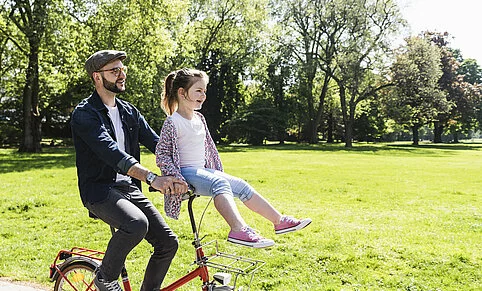
7 good Reasons for working in Austria
Ines Vodanovic
We use cookies to ensure that we give you the best experience on our website. Find out more in our Privacy Statement .
- Events, Media and Press

- Corporate Philosophy
- History of WPK
- Medical Management
- International Patients
- Awards & Quality
- WPK Office Bucharest
- Core Competences
- WPK Academy Cancer Center
- Radiology Center
- Aeromedical Center
- Amethyst Radiotherapy Vienna
- Osteopathic Medicine, Physical Therapy
- Further Medical Services
- Useful Information for Admission
- Payment Information
- Recovering & Healing in Luxury
- Book appointment
- Book Video Consultation
- Online Health Care Center
- Transcranial pulse stimulation
- What is anemia?
- World’s Best Hospitals 2021

Austria Nurses Vacancy
We want you.
INTRODUCTION OF THE VIENNA PRIVATE HOSPITAL
The Wiener Privatklinik (WPK) has been operating since 1995 as Wiener Privatklinik Betriebs-Ges.m.b.H. & Co.KG. Since 2005 the private hospital in Vienna has been extended from one to two building parts. The WPK is one of the leading private hospitals in Austria and offers up to date equipment, new diagnostics options and the best medical and nursing care for the patients.
In 2015, the day clinic was opened, in which various interventions and examinations can be performed during a day hospital stay. The technical equipment in the hospital, such as interventional angiography, endoscopy and operating theathers are at the highest technical standards and with the newly developing Radiation Clinic the WPK is the only private hospital in Vienna and Austria that offers these diagnostic and therapeutic options.
PHILOSOPHY AND GUIDANCE
- We understand our patients as unique, individual people
- Our nursing services combine competence with empathy
- The appreciation of our employees is visible through transparent information and constructive communication
- We pay attention to the individual needs of our employees and promote their strengths
- professional quality in nursing for us means working accordingly to guidelines and standards and ongoing professional develoment
- We work according to jointly defined target agreements
Our goal is to offer first-class interaction of medical supplies, competent nursing-care and state-of-the-art hospital management to provide excellent care for patients and an optimal working environment for attending physicians and nursing staff. Currently the clinic provides 140 beds in single and double rooms for it‘s demanding patients and is particularly known for its success in the fields of internal medicine, oncology, trauma surgery, sports traumatology, surgery and orthopedics.
Due to the proximity to the Vienna University Hospital – AKH and the close contact to the medical researchers and medical professionals there, patients can be treated with the best and most modern therapies. Mixing the greatest possible flexibility, high management- and nursing skills and state-of-the-art equipment, the clinic can score over other hospitals and competitors.
NURSING CARE WITH EMPATHY AND EXPERTISE
Modern nursing-management combines competence with humanity and our Patients benfit from this during their stay in the hospital. Patients are taken seriously with all their needs, expectations and fears and experience empathic and professional Nursing care on the highest level.
Our Nurses are also contact persons for family members and relevant others of our patients. In the sense of a holistic and family-centered care we support and advise our patients and their relevant others. In complex caring situations our discharge management prepares the home discharge or the transfer to a nursing home.
In order to keep our nurse’s knowledge up-to-date, evidence-based trainings and further education is offered on an ongoing basis for the nursing team at the WPK. We have implemented a new training concept in the form of „One Minute Wonders“ (we call them one minute Fortbildungen = OMF). The entire nursing departement in the WPK is certified according to the internationally recognized standard ISO 9001. The ISO standard defines standards for setting up a quality management system and is used as a structuring tool. Due to this risks during nursing procedures can be recorded more efficiently and the susceptibility to errors can be minimized.
MEDICAL SUPPLY BY THE PHYSICIANS OF THE VIENNA PRIVATE HOSPITAL
In addition to the hotel component, medical know-how is the first obligation towards our patients. The clinic is well known for its achievements in the fields of internal medicine, oncology, trauma surgery, sports traumatology, surgery, thoracic surgery and orthopedics.
Scientific Advisory Board Through the implementation of a scientific advisory board the highest quality in medicine and also quality control can be assured for all medical procedures in the Wiener Privatklinik. The scientific advisory board is acting independently Quality assurance in medicine, quality control and the latest standards in treatment are guaranteed by the Scientific Board of Wiener Privatklinik. This independent acting scientific advisory board currently consists of ten professors from the Medical Faculty of the Medical University of Vienna.
- Physician‘s further education and training by the Forum for Private Medicine The “Forum Private Medicine”, initiated by the Wiener Privatklinik, organizes several times a year events on medical topics. These events are recognized by the Austrian Medical Association.
CORE COMPETENCES
Caring for patients with large variety of medical conditions gives you the opportunity to acquire a wide range of specialist knowledge. Especially for young nurses this generalistic approach in our hospital offers a big advantage, since you can acquire broad nursing expertise. For the future, this opens up the opportunity to work in different departments and thus increases your attractiveness for future employers. You also have the opportunity to specialize in various fields (e.g. in the field of oncology nursing or as operating theater nurse).
We care for patients with medical conditions from the following medical disciplines
- Oncology with the WPK Academy Cancer Center
- sports medicine and traumatology
- Cardiovascular medicine
- Orthopedics
- Peripheral Nerve Surgery – Millesi Center
- General surgery
- orthopedic tumor center
- Gastroenterology and hepatology
- Interventional radiology and microtherapy
- Maxillofacial surgery
- plastic and reconstructive surgery
WHAT IS DIFFERENT FROM OTHER HOUSES?
The Wiener Privatklinik endeavors to render MORE than a normal hospital in order to provide patients with the best possible medical and nursing care.
- Through the practiced service orientation, employees develop into socially competent team members.
- Strong team orientation fosters flexible, responsible employees.
- A personal and friendly tone creates a familary atmosphere.
- Permanent reinvestment in the work area creates a modern workplace.
- Constant business expansion results in a secure workplace. Career opportunities are supported by ongoing training.
- By organizing employee events, the management shows appreciation to the employees
- Professional quality in nursing means working according to guidelines and standards and constantly evolving.
- We have the aspiration of high professionalism in the sense of the Center of Excellence in Nursing.
Nursing Care training
Once a month evidence-based nursing care trainings on actual topics are offered. The content of this trainings is individually prepared and tailored for the clinic by a qualified nursing educator. For all trainings the Nurses receive a training certificate.
Continuing education opportunities
If you want to continue your education (e.g. specialization, to complete an extra-occupational study course), you will receive support from the management of the Wiener Privatklinik. This can result e.g. in the assumption of the education costs (with declaration of obligation), the reduction of the weekly working hours or exemption for theory modules and is determined individually with the respective employee.
Working time models
At the Wiener Privatklinik Nurses usually work 12 hours a day. This has the advantage that you work only 14 days a month (with 40 hours commitment). The shifts are flexibly coordinated with the colleagues on the station by the ward management and with a defined day and night presence of Nurses. However shorter shifts (e.g., 8h, 10h per day) may also be offered on a base of individual needs. Usually shifts start at 07:00 and end at 19:30 and have to be covered from Monday to Sunday. In some areas, late shifts (for example, from 09:00 to 21:00) are required. Supplements are paid for weekend shifts, as well as night-shifts and holiday services. In special cases a core-time working model (Monday-Friday from 07: 00-17: 00 clock) is possible.
VISIONEN AWARD 2019
1st place with the project “One Minute Trainings” 3rd place with the project “POB – PflegepraktikantInnen optimally cared for”
VISIONEN AWARD 2017
3rd place with the project “Videodollmetsch”
EMPLOYEES AWARD “HEALTH WITH HEART” 2012
1st place with the project “emergency team”
REQUIREMENTS TO START WORKING IN THE WPK
In order to work as a Nurse in Austria the following requirements must be met:
- Your professional qualification must be recognized in the Federal Ministry for health and social services.
- You have to be registered as a nurse in the Gesundheitsberuferegister.
- Proof of your german language skills on level B2
The recognition of your professional training
The recognition of your professional training completed abroad has to be done at the Federal Ministry of Labor, Social Affairs, Health and Consumer Protection.
For Croatian Nurses you find a specific information sheet listing all the necessary documents and the necessary steps for recognition. Under the following Link: information sheet for HR Nurses For Czech Nurses you find a specific information sheet listing all the necessary documents and the necessary steps for recognition.
For Romanian Nurses you find a specific information sheet listing all the necessary documents and the necessary steps for recognition. Under the following Link: information sheet for RO Nurses For Slowakian Nurses you find a specific information sheet listing all the necessary documents and the necessary steps for recognition. Under the following Link: information sheet for SK Nurses
Registration in the Austrian healthprofessional register
All Nurses who want start working in Austria must be registered. This must be done BEFORE you start to work .The registration is valid for five years and has to be renewed in a five year cyclus. If the registration is not renewed the nurse loses her/his rigth to work in Austria. After the sucsessfull registarion you get a identification card that shows you are entitelt to work as a Nurse in Austria and is also valid for identification. Link to the Healthprofessional Register
For non-Austrian Nurses, the following documents must be submitted for registration with the authority:
- proof of professional qualification as a Nurse (e.g. Nursing Diploma, Bachelor Certificate). This document must be translated and notarized.
- Nostrifikationsbescheide or certificate of recognition
- proof of completion of special or specialization training (e.g. critical care diploma). This documents must be translated and notarized.
- proof of identity (e.g. passport, identity card)
- proof of trustworthiness (e.g. criminal records certificate), not older than three months at the time of application
- proof of health status (medical certificate), at the time of application not older than three months
- proof of German language skills on level B2
- passport photo
SALARY IN THE WIENER PRIVATKLINIK
The actual salary depends on the working module you are choosing and on pre-employment times that can be recognised. The gross annual salary according to the collective agreement is € 35,089.04, based on a 40-hour week. This salary is paid 14 times a year. In addition Sunday working hours and holiday services, night shifts and overtime are financially compensated.
RESIDENTIAL OPPORTUNITIES IN VIENNA
If you do not want to rent an apartment in Vienna right away, we can offer to temporarily rent a room or a small residential unit in the complex of the senior residential home in Schloss Liechtenstein (about 25km from the WPK, the clinic can be reached in about an hour by public transportation). The rent for such a unit is € 190, – incl. Ust.
Schnuppertag an der Wiener Privatklinik
If we have aroused your interest and you would like to apply for a position as a registered nurse in our clinic, we offer you the opportunity to complete a test day in our hospital. After the interview with our nursing director you will get to know the clinic and the staff on duty. So you will get an idea of your future employer and the working conditions. We would reccomend to choose a Friday for a test day because you could spend the following weekend in Vienna and learn about the beauty and opportunities of the city of Vienna as your possible new living place.
Requirements for a Test Day in the WPK:
The following documents have to be sent, respectively steps have to be completed, BEFORE you apply for a Test Day, to the WPK in order to be able to proceed with the application process!
- Resume/Curriculum vitae
- Motivation letter
- professionally translated documents to proof your qualification (e.g. diploma) as a registered Nurse
- Job Interview
If you would like to get to know the Wiener Privatklinik and spend a Test Day, please contact our nursing department via e-mail. bewerbung-pflege@wpk.at We will contact you a.s.a.p regarding an appointment.
If we have aroused your interest and you would like to apply in our clinic, then your starting point is our nursing director Mrs. Giehser, MSc MBA.

Nursing director Mrs. Giehser is responsible for the following areas in the Vienna Private Clinic: strategy, specialist policy, management, controlling, organization and personnel development, contact person for potential new employees in the nursing field. Mrs. Giehser can be reached at: hauerstorfer@wpk.at
How to get to Wiener Privaklinik
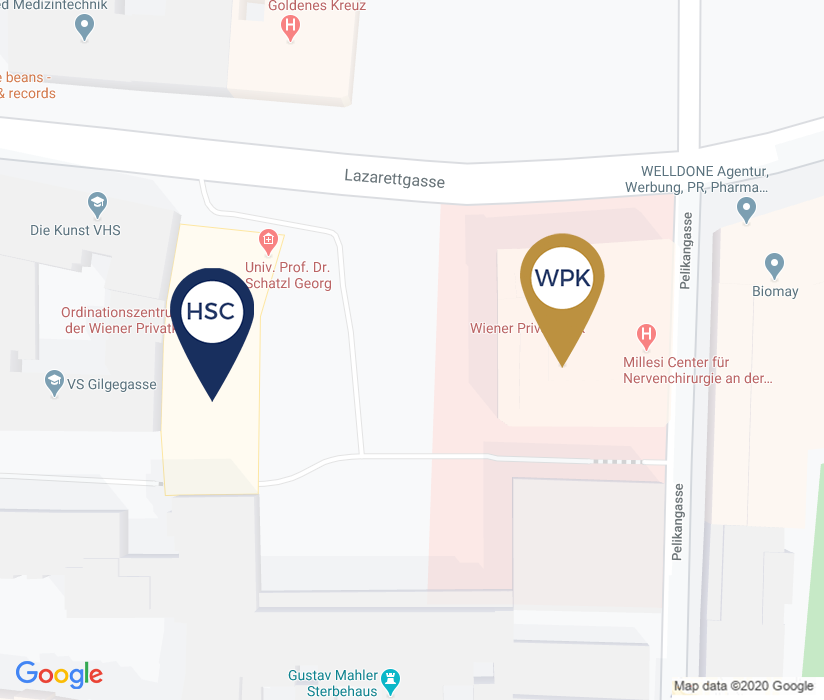
Wiener Privatklinik
Pelikangase 15 1090 Vienna
How to Become an International Travel Nurse
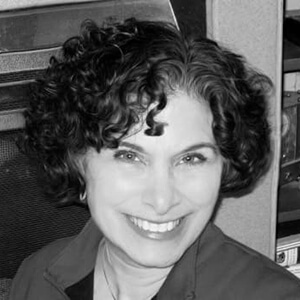
NurseJournal.org is committed to delivering content that is objective and actionable. To that end, we have built a network of industry professionals across higher education to review our content and ensure we are providing the most helpful information to our readers.
Drawing on their firsthand industry expertise, our Integrity Network members serve as an additional step in our editing process, helping us confirm our content is accurate and up to date. These contributors:
- Suggest changes to inaccurate or misleading information.
- Provide specific, corrective feedback.
- Identify critical information that writers may have missed.
Integrity Network members typically work full time in their industry profession and review content for NurseJournal.org as a side project. All Integrity Network members are paid members of the Red Ventures Education Integrity Network.
Explore our full list of Integrity Network members.
- What Is an International Travel Nurse
- Steps to Become
Choosing a Specialization
- Credentials

Great pay and boundless opportunities are just some reasons why nurses choose travel nursing. The job options are a good fit for nurses who love to travel, discover new places, and want to broaden their skill set.
Travel nurses help temporarily fill shortages. In the U.S., assignments may range from 13-26 weeks, but international assignments are often at least one year.
European countries offer some of the highest-paying jobs. Benefits can include a housing stipend, travel costs, and partially covering food and other living expenses.
Travel nursing jobs within the U.S. are simple to arrange. Travel nursing internationally, however, has a few added prerequisites.
Discover how to become an international travel nurse, types of assignments available, and the required certifications.
How Long to Become: 4-6 years
Degree Required: ADN, BSN, or MSN
Job Outlook: 6% growth, 2021-2031 Source: U.S. Bureau of Labor Statistics (BLS)
What Is an International Travel Nurse?
There is a global nursing shortage . Countries with shortages need to increase nurse graduates by an average of 8% annually. One out of every eight nurses works in a country where they were not born or trained. This is what international travel nursing looks like.
Travel nursing is available domestically. But you can also choose to travel and work internationally.
Nursing shortages have hit countries across the world and they require medical personnel to fill their needs. This offers travel nurses an opportunity to expand their skills and learn new medical techniques.
Many countries need to fill positions in nursing specialties . Hospitals, doctors’ offices, and outpatient care clinics are just some of the settings in need of international travel nurses.
The most sought-after nurses often have experience in emergency rooms (ERs)/ emergency departments (EDs) as an ER nurse , intensive care, and cardiac care. Nurses with experience as a labor and delivery nurse and in neonatal nurse care are also desirable.
Steps to Becoming an International Travel Nurse
Becoming an international travel nurse is much like working as a domestic travel nurse. However, there may be additional requirements depending on your destination.
A nurse must hold licensure from the state board of nursing , which confers the registered nurse (RN) credential.
Earning this requires passing the National Council Licensure Examination for RNs (NCLEX-RN). Some states have additional requirements.
To start your journey as an international travel nurse, take the following steps:
Earn a bachelor of science in nursing (BSN) degree.
International travel nursing demands high-level nursing skills in your specialization. This starts with earning a four-year bachelor of science in nursing degree from an accredited school.
A bachelor of science in nursing (BSN) improves patient care and prepares you for leadership and management positions.
Nurses with an associate degree in nursing (ADN) may enroll in an RN-to-BSN degree bridge program to complete their BSN. If you are entering a BSN program with a bachelor’s in another field, consider accelerated nursing programs .
Pass the NCLEX-RN exam.
The National Council of State Boards of Nursing offers the NCLEX exam . It is a national exam all U.S states accept. The test demonstrates your clinical competency in nursing and decides if your state will issue you a nursing license.
To take the exam, you must hold either an ADN or BSN, which can also help you develop a NCLEX study plan . You are tested on care management, pharmacology, and safety and infection control, among other areas. NCLEX practice questions are available through various study sites.
Gain experience.
To work and travel domestically, the best travel nursing agencies may want you to have at least one year of experience in your specialty. However, international travel nursing positions may require even more experience or nursing certifications . This depends on the country and the facility you’ll work from.
Earn proper credentials.
Domestic travel nursing requires that you have a nursing license in the state where you will be working. For international travel nursing, your destination country may have a longer list of requirements.
This list can include a valid passport, visa to work in the country, and vaccinations needed before traveling . Some facilities may require special certifications. Others may require a language test to demonstrate proficiency before travel.
Find employment.
International travel nurses may work in hospitals, doctors’ offices, or outpatient clinics. While it’s not necessary to work with a travel nursing agency, it can help you look for work, finalize your contract, and move.
Note the length of your contract as you decide on your location. Domestic travel nurses often work 13-26 weeks. International nurses may be offered one- or two-year contracts.
International Travel Nurse Schooling
As you consider your options as a travel nurse, know the educational and skill requirements you may need. Most organizations prefer a BSN degree.
To work internationally, you need an undergraduate degree in nursing from a four-year program, such as an in-person or online BSN program . To apply for a graduate-level program, students often must hold a BSN.
Admission Requirements
Program curriculum, time to complete, skills learned.
Whether choosing to work in a nursing specialization or advancing your career through a graduate program , nursing offers the opportunity to specialize. Nurses graduating from a BSN program can choose to become certified in a specialty, which demonstrates their advanced knowledge.
For example, nurses may choose certification as a rehabilitation nurse , a pain management nurse , or in cardiac care.
Advanced practice registered nurses (APRNs) can choose to practice as a family nurse practitioner, pediatric nurse practitioner, adult-gerontology nurse practitioner , acute care nurse practitioner, psychiatric mental health nurse practitioner, nurse midwife, certified registered nurse anesthetis t, and more.
The specialty you choose will help determine your opportunities as an international travel nurse.
International Travel Nurse Credentials
International travel nurses need a nursing license in the U.S. An APRN needs to take the certification exam in their specialty. After these two requirements, you will need a passport, visa, work permit, and any sponsorship for your destination country.
Each country may have its own list of necessary documentation. This can include professional references, birth certificates, immunization records, and proof that you can speak the language.
Certifications
APRNs need certification in their specialty field. For example, those who want to become a family nurse practitioner (FNP) must pass the FNP certification exam. This is a valid, reliable demonstration of your competency in the field.
An RN may choose to have certifications that demonstrate advanced knowledge in rehabilitation nursing, pain management, or other specialty areas. Professional associations offer certifications that have specific requirements to maintain the credential.
Nursing requires state licensure that confers the credential of RN on the nursing candidate. To get the license, nurses must pass the NCLEX-RN.
Additional requirements depend on the state, including background and fingerprint checks, or school transcripts. Each state board of nursing has requirements to maintain licensure, including continuing education .
Working as an International Travel Nurse
Nursing gives you a unique opportunity to work and travel the world. The severe global nursing shortage has opened up opportunities for nurses who work in operating and emergency rooms, cardiac and neonatal units, and other specialties.
Countries with the highest salaries for travel nurses are Luxembourg, Switzerland, and the United States. However, they also have the highest cost of living. The average salary is $115,020 per year according to ZipRecruiter as of January 2023, or about $2,210 per week.
The simplest way to get into international travel nursing is to sign up with an agency that works with international organizations. They help refine your travel search based on your skills and past work experience.
Consider testing the waters as a travel nurse within the U.S. before exploring long-term contracts overseas.
Another option is working with the U.S. Department of Defense (DoD, which has international jobs for nurses. The DoD works with you to ensure you have the necessary documentation to work overseas. You can receive job alerts for their international postings.
Beyond documentation, you need skills. Nurses should have communication, conflict resolution, and team player skills. Without a strong command of the local language, it is impossible to be successful.
The following are some common workplace settings for international travel nurses. Note that your specializations and certifications will help determine the positions available to you.
Organizations seek nurses who have specialty skills in the intensive care unit, emergency room, telemetry, or the operating room. These areas require critical thinking for nurses , initiative, and leadership.
Outpatient Care Clinics
In an outpatient setting, nurses must be proficient at triage, assessment, educating patients, starting IVs, and RN case management .
Doctors’ Offices
In a doctor’s office, a nurse needs mastery of communication, assessment, medication administration, wound management, and minor medical procedures.
Becoming an International Travel Nurse: FAQs
Do travel nurses go internationally.
Travel nurses can choose to travel domestically or internationally. To travel and work overseas, you need a license and certification in your specialty, passport, and work visa. You may also need to take a language test to prove proficiency and provide reference letters. While domestic travel assignments can last up to 26 weeks, international ones can last up to two years.
How much do international travel nurses make?
Travel nurses are well paid to offset the stress of living and working away from home. Travel nurse salaries depend on your nursing specialty and country placement. Your compensation package includes an hourly salary, housing stipend, and travel expenses. It may also cover food and other living expenses.
How do I become an international nurse?
The first step is to earn your BSN from an accredited school. After graduation, you must pass the NCLEX-RN and apply for a license in your state. Most travel agencies want new nurses to have at least one year of bedside experience. Many recommend two years to gain proficiency in a specialty to practice internationally.
Once accepted by an agency, it can take up to one year to gather the necessary documents required by the country if you do not already have them. This can include a passport, work visa, recommendation letters, and testing in the language. Some countries may also require sponsorship.
Where is the best place to work as an international travel nurse?
International travel nursing is an opportunity to travel overseas while working. The best place depends on your goals. For example, Luxembourg is one of the highest-paying countries, but they also have a high cost of living. Canada, the United Kingdom, and Australia do not require learning a new language. The Dominican Republic, Ethiopia, and Bolivia can offer a chance to make a real difference in people’s lives.
Learn More About International Travel Nurses

10 Tips for Nurses Interested in International Travel Nursing
International travel nursing offers you the chance to globe-trot while getting paid. These 10 tips can help you navigate travel issues that may arise.

How Much Do Travel Nurses Make?
Travel nurses can earn more than other RNs. Learn more about travel nurse pay rate, benefits, and tax breaks. Identify the highest-paying states and travel nurse specialities.

Military Nurse Career Overview
Military nurses work in fast-paced environments, caring for enlisted soldiers and their families. Learn about how to become one in the guide below.

Missionary Nurse Career Overview
Missionary nurses travel overseas to deliver nursing care and Christian counseling. See how you can become a missionary nurse and learn more about what they do.
Page last reviewed January 23, 2023
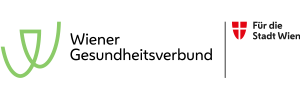
Vienna Healthcare Group
Join our nursing team in austria.
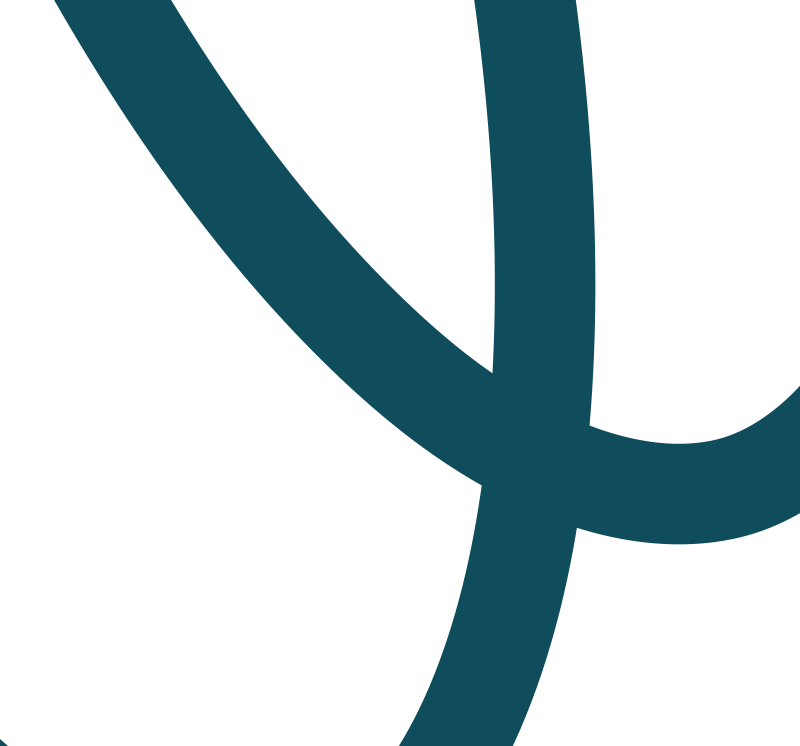
30,000 employees from 82 countries. 1 common mission: health first.
Why work for us.
We are looking for trained registered nurses from all around the world. Start your nursing career in one of our 8 clinics in Vienna. This is what we have to offer:
One of the largest health care providers in Europe
Flexible work schedules full-time and part-time, located in vienna, voted the world’s most liveable city, 14 pay checks per year paid holidays, 25 days per year, employer-covered health insurance, postgraduate training in our own academy.
With 8 clinics, 9 nursing homes, 1 therapy centre and 5 training sites, the Vienna Healthcare Group is one of the largest health care institutions in Europe.
As an enterprise of the City of Vienna and an attractive employer, we offer a wealth of fields of application, areas of activity, further training and career opportunities.
Our 30,000 employees ensure the well-being of the patients entrusted to them, 365 days a year, around the clock. If you have completed your nursing training and enjoy working with people, the Vienna Healthcare Group is the right place for you to be.
Where to find us: Our clinics
In our 8 clinics, we offer cutting-edge medicine at the highest international level, regardless of income, origin or age. Every year we treat around 228,000 inpatients and handle around 4.7 million outpatient visits. Learn more about our clinics in the following document: Vienna Healthcare Group
- Vienna University Hospital
- Clinic Donaustadt
- Clinic Favoriten
- Clinic Floridsdorf
- Clinic Hietzing
- Clinic Landstraße
- Clinic Ottakring
- Clinic Penzing
Living in Vienna: Learn more about the city
Vienna has once again been voted the world’s most liveable city. What is living in Vienna like? Find more information here:
- World’s most liveable city
- Quality of life in Austria
- Guide to living in Austria
- Vienna in Figures
- Fact sheet resources for the international community
- YouTube channel of Vienna
- City of Vienna website
- Public Services in Vienna
- Services of general interest
Working in Vienna: The Austrian health care system
What is working in Vienna like? Learn more about the Austrian health care system.
- The Austrian health care system – key facts
- Health care professions in Austria
Working in Austria
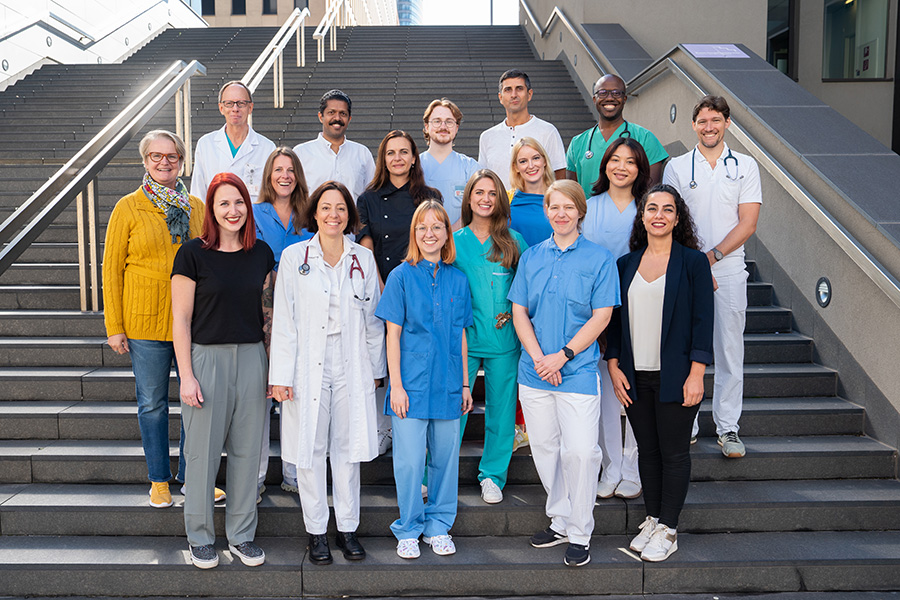
Your job description
Have you completed your education in your home country and would now like to work in Austria? In order to work as a nursing assistant level 2 or registered nurse in Austria, the following requirements must be met:
- Your professional qualifications must be recognised and registered by the Federal Ministry of Social Affairs, Health, Care and Consumer Protection in the Health Professions Register (“Gesundheitsberuferegister”).
- You will need a residence permit in Austria, called the Red-White-Red card .
- Your German language skills must be at levels B1 for nursing assistants level 2 and B2 for registered nurses.
Working as nursing assistant level 2
You will complete our nostrification programme until your documents have been recognised by the Austrian authorities. This includes a German language course and the acquisition of cultural knowledge. Once you have reached German level B1, you can work in one of our clinics as a nursing assistant level 2 (“Pflegefachassistenz”).
Working as a registered nurse
Once the entire nostrification programme has been completed, you can start your career as a registered nurse.
For more information, please refer to 12.1. for registered nurses and 12.2. for nursing assistants level 2 in the following document: Health care professions in Austria
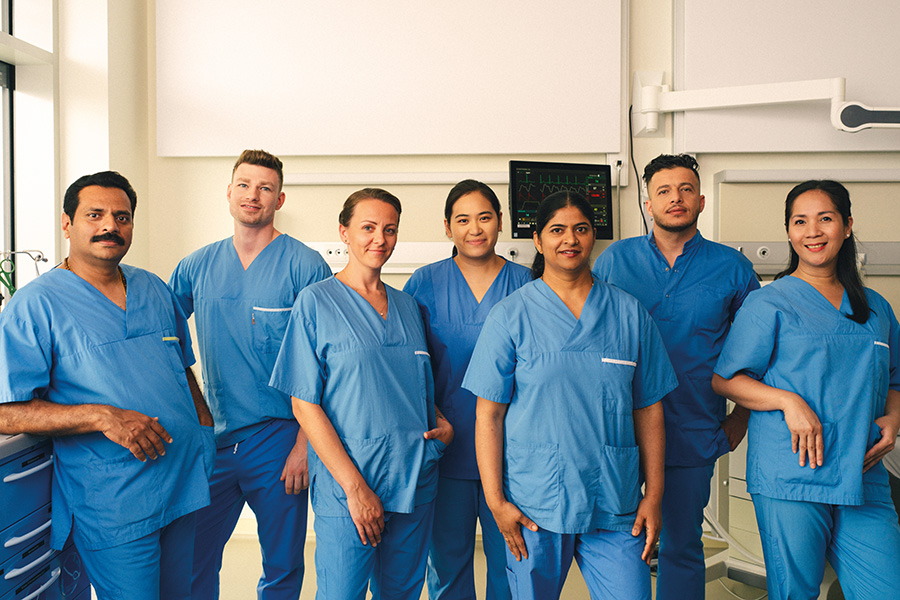
Application – how it works
Submit your application.
Please apply to our partner universities in your home country.
We are currently working with Lincoln University College . Please note that registered nurses from India need an apostille for all required original documents.
For any other country, please contact us via email .
We guide you through the whole nostrification programme
The University of Applied Sciences FH Campus Wien prepares you for the legal, professional, linguistic and cultural aspects of working in Austria.
You start the nostrification programme in your home country. As soon as you have received a student residence permit, you can enter Austria with a visa D and continue the nostrification programme here. The time it takes to complete depends on your language learning progress. The programme must be completed by 24 months at the latest.
Applying for a student visa
If you get accepted into the nostrification programme, you can apply for the residence title of “student”. Our partner universities will support you with the application process. It can take up to 90 days until you get the permit.
In order to enter Austria, you must apply in person for a visa D at the Austrian embassy in your home country. Please note that you need to get the student permit first.
Attend our free German language course
You need German language level B1 or B2 to work in Austria as a nursing assistant level 2 or registered nurse. The focus of the nostrification programme is therefore on developing your language and cultural skills. The programme starts at the university in your home country.
Once you have reached level B1, you can work as a nursing assistant level 2 at the Vienna Health Care Group. While working, you will continue to attend German courses to reach level B2.
How quickly you are employed as a nursing assistant level 2 or registered nurse depends on your personal learning progress. The average time to level B1 is 7 to 9 months. Level B2 must be reached by 24 months at the latest.
We help you move to Austria
We pay for your flight ticket to Vienna and welcome you at the airport. A pick-up service will be provided.
During your studies we will provide you with a flat. When you start to work as a nursing assistant level 2, you will have time to look for your own accommodation. You will also be supported when dealing with public administrations and in case any queries arise.
For further help, please contact us via email .
Welcome on board: Meet your co-workers
An onboarding process is currently being developed. It is important to us that you feel comfortable in your future team and are prepared in the best possible way for your tasks as a nursing assistant level 2 and registered nurse.
Boost your career and increase your salary
You start your work at the Vienna Health Care Group as a nursing assistant level 2. The faster you improve your German skills and pass the language tests, the sooner you can start your career as a registered nurse – and thus earn a higher salary.
Why nurses choose to work with us
Faq – frequently asked questions, application.
Who can apply?
We welcome applications from registered nurses at our partner universities. Tertiary nursing education must have already been completed.
Which training courses are recognised?
We are only looking for registered nurses. Recognition of the training is carried out by the University of Applied Sciences FH Campus Wien. In cooperation with our partner universities we offer a joint nostrification programme. You must complete this before you can work with us as a registered nurse.
What requirements do I have to fulfil?
You must have completed your training. To find out more about the requirements, please contact the partner university in your home country. We are currently working with the following universities:
Lincoln University College
How can I apply?
For all questions regarding the application process, please contact our partner universities. We are currently working with the following universities:
I come from India. Where do I get my apostille?
The office responsible is the Joint Secretary of the Ministry of External Affairs. Please contact:
Joint Secretary (Consular), MEA CPV Division, Patiala House Annex Tilak Marg New Delhi 110001, India +91 11 2338 8015 Email Website
Do I have to certificate/nostrificate my degree?
Please visit the website berufsanerkennung.at/en
How exactly does the application process work?
Is the entire application process in English?
How does the nostrification programme work?
You need German language level B1 or B2 to work in Austria as a nursing assistant level 2 or registered nurse. The focus of the nostrification programme is therefore on developing your language and cultural skills.
Once you have passed the language tests of level B1, you can work as a nursing assistant level 2 at the Vienna Health Care Group. While working, you will continue to attend German courses to reach level B2.
How quickly you are employed as a nursing assistant level 2 or registered nurse depends on your personal learning progress.
What support do I get as a student?
As a language student you receive a stipend: up to 24 years €672,64 net salary per month, as from 24 years €1,217.96 net salary per month. Health insurance is included.
During your studies we will provide you with a flat. When you start to work as a nursing assistant level 2, you will have time to look for your own accommodation.
You will also be supported when dealing with public administrations and in case any queries arise.
I don’t speak German. Must I take a course in German?
The acquisition of language skills in German is of central importance. Therefore, the focus of the nostrification programme is on language acquisition.
I already speak German, level B2. Can I start work as a registered nurse straight away?
No. You still have to complete the nostrification programme, as this also includes the acquisition of professional and cultural knowledge. Afterwards you can start working as a registered nurse in one of our 8 clinics.
Due to your language skills, the nostrification procedure is considerably shorter.
What does language level B1 or B2 mean?
For more information, please visit europa.eu
How long does it take from application to starting work?
That depends on the official channels and your personal learning success. The entire nostrification process must be completed within 24 months.
What onboarding measures are there for starting work?
What are the benefits if I choose to work for the Vienna Health Care Group?
- Vienna has been voted the world’s most liveable city
- safe workplace
- competitive salary
- good work-life balance
- flexible working hours
- 25 days’ paid holiday per year
- free accommodation during your studies
- free German language classes as part of the training
- overtime is compensated for either with time off or financially
How many hours are there in a full-time working week?
A regular working week in Austria is 40 hours. The lunch break is paid for.
We have flexible duty rosters: A shift has a maximum of 13 hours at a time. The maximum working time per week is 60 hours. There must be a break of at least 11 hours between two shifts. There must be a rest period of 36 hours at a stretch once a week.
Overtime is compensated for either with time off or financially.
Can I work part-time?
The Vienna Health Care Group offers several possibilities for part-time work.
We have a flexible rota: A shift has a maximum of 13 hours at a time. The maximum working time per week is 60 hours. There must be a break of at least 11 hours between two shifts. Once a week there must be a rest period of 36 hours at a stretch.
How much will I earn working full-time?
As a language student you receive a stipend: up to 24 years €672,64 net salary per month, as from 24 years €1,217.96 net salary per month.
As a nursing assistant level 2 you earn about €2,917 gross monthly/14 times a year. This includes a €150 hardship allowance.
As a registered nurse your salary starts at €3,336 gross monthly/14 times a year. This includes a €150 hardship allowance.
Further allowances are added to the salary depending on the ward in which the work takes place and how many night and weekend shifts are completed.
Tax is deducted directly from the salary, including health insurance, unemployment insurance and pension scheme.
You can see your net salary here: bruttonetto.arbeiterkammer.at or finanzrechner.at/en
Is my employment contract temporary?
The employment is for an indefinite period.
I have questions about my employment contract. Who can I contact?
The human resources departments in our clinics are responsible for your questions once you are employed.
For general enquiries, please contact the Vienna Health Care Group by email .
Who takes care of my health/social insurance?
Tax is deducted directly from your gross salary, including health insurance, unemployment insurance and pension insurance.
Living in Vienna
How liveable and safe is Vienna?
Vienna is one of the safest and most liveable cities in the world. All people are welcome, regardless of their gender, origin, age and religious affiliation.
The Vienna Healthcare Group works in line with the principle of anti-discrimination and promotes equal opportunities and justice.
Which residence title do I get in Austria?
During the German language course you are a student. Therefore, you will enter Austria with the residence title of “student” and a visa D.
Before you start your work as a nursing assistant level 2, you have to apply for a Red-White-Red card .
As soon as you are allowed to work as a registered nurse, you have to apply again and update your Red-White-Red card.
When can I apply for permanent residence? What are the criteria?
Please find information on migration.gv.at .
Are there employer apartments? If so, how long can I use them?
Who bears the costs for my move?
We pay for your flight to Austria. A pick-up service will be provided.
What is the cost of living in Austria?
Please check the website numbeo.com .
Can I bring my family members with me?
Please check for the latest facts on migration.gv.at .
What languages are spoken in Vienna?
The official language is German. Vienna is a very multicultural city. Therefore many languages are spoken.
Feel free to contact us for further information:
Vienna Healthcare Group Wiener Gesundheitsverbund Thomas-Klestil-Platz 7/1 A-1030 Vienna, Austria
Our partners

Wiener Gesundheitsverbund
1030 Wien Thomas-Klestil-Platz 7/1 +43 1 40409 0
- Was tun im Notfall?
- Gesundheitsförderung für Mitarbeiter*innen
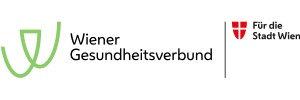
Cookie- und Datenschutzeinstellungen
Ein Cookie oder auch HTTP-Cookie bezeichnet eine Textinformation von Websites. Wenn Sie diese Websites besuchen, werden diese Informationen auf dem jeweiligen Browser abgespeichert.
Wir können verlangen, dass Cookies auf Ihrem Gerät gesetzt werden. Wir verwenden Cookies, um uns mitzuteilen, wann Sie unsere Websites besuchen, wie Sie mit uns interagieren, um Ihre Benutzererfahrung zu bereichern und um Ihre Beziehung zu unserer Website anzupassen.
Klicken Sie auf die verschiedenen Kategorieüberschriften, um mehr zu erfahren. Sie können auch einige Ihrer Einstellungen ändern. Beachten Sie, dass das Blockieren einiger Arten von Cookies Ihre Erfahrung auf unseren Websites und den Diensten, die wir anbieten können, beeinträchtigen kann.
Folgende funktionelle Cookies stellen die Leistung der Website sicher: Name: PHPSESSID, stdpsessionkavgvtestwiengvat Typ: Session Cookie – Gültig bis zum Ende der Sitzung Diese Cookies speichern Ihre aktuelle Sitzung mit Bezug auf PHP-Anwendungen und gewährleisten die Funktionen der Seite, die auf der PHP-Programmiersprache basieren.
Die Cookies werden bis maximal 1 Jahr gespeichert.
Wir verwenden folgende Cookies:
Typ der Cookies: HTML Anbieter: Website
Google Maps & Recaptcha (Cookie-Anbieter: Google)
Datenschutzrichtlinie von Google
Ablauf der Google-Cookies: Die meisten Cookies verfallen 10 Jahre nach Ihrem letzten Besuch auf einer Seite, die eine Google-Karte enthält.
Youtube (Cookie-Anbieter: Youtube)
Ablauf der YouTube-Cookies: Die meisten Cookies verfallen 10 Jahre nach Ihrem letzten Besuch auf einer Seite, die ein Youtube-Video enthält. Einige verfallen früher.
Siteimprove Analytics (Cookie-Anbieter: Siteimprove GmbH)
Verantwortlich für den Datenschutz: Wiener Gesundheitsverbund Generaldirektion Thomas Klestil Platz 7/1 1030 Wien
Diese Cookies werden verwendet, um Ihnen die über unsere Website verfügbaren Dienste bereitzustellen und einige ihrer Funktionen zu nutzen.
Da diese Cookies für die Bereitstellung der Website empfohlen werden, kann es sein, dass die Funktionsweise unserer Website beeinträchtigt wird, wenn Sie diese Cookies nicht zulassen möchten. Sie können sie blockieren oder löschen, indem Sie Ihre Browsereinstellungen ändern und das Blockieren aller Cookies auf dieser Website erzwingen. Aktivieren Sie diese Option, um das dauerhafte Ausblenden der Nachrichtenleiste zu aktivieren. Wir benötigen ein Cookie (Name: aviaPrivacyRefuseCookiesHideBar), um diese Einstellung zu speichern. Andernfalls werden Sie beim Öffnen eines neuen Browserfensters oder eines neuen Tabs erneut aufgefordert. Klicken Sie hier, um weitere Website-Cookies für Detail-Einstellungen zu aktivieren/deaktivieren, die weiteren Cookies dienen dem Ein- bzw. Ausschalten von Google Maps, Recaptcha, Webfonts und Youtube auf dem nächsten Reiter (Cookie-Name: aviaPrivacyEssentialCookiesEnabled).
Wir verwenden auch verschiedene externe Dienste wie Google Webfonts, Google Maps und externe Videoanbieter. Da diese Anbieter möglicherweise personenbezogene Daten wie Ihre IP-Adresse sammeln, können Sie diese hier sperren. Bitte beachten Sie, dass dadurch die Funktionalität und das Erscheinungsbild unserer Seite stark eingeschränkt werden können. Änderungen werden wirksam, sobald Sie die Seite neu laden.
Genaue Details zu den Verantwortlichen/Drittanbietern finden Sie weiter unten auf dieser Seite.
Google Webfont-Einstellungen: Google Fonts setzt keine Cookies. Aber wenn eine Schriftart (= eng. Font) vom Browser der/des Webseitenbesucher*in angefordert wird, wird dessen IP-Adresse von Google erfasst und für Analysezwecke verwendet. Google wertet u.a. aus, wieviele Besucher*innen Google-Schriftarten verwenden. Klicken Sie hier, um Google Webfonts zu aktivieren/deaktivieren.
Google Map-Einstellungen: Damit Google Maps ihren Dienst vollständig anbieten kann, muss das Unternehmen Daten von Ihnen aufnehmen und speichern. Dazu zählen unter anderem die eingegebenen Suchbegriffe, Ihre IP-Adresse und auch die Breiten- bzw. Längenkoordinaten. Benutzen Sie die Routenplaner-Funktion, wird auch die eingegebene Startadresse gespeichert. Diese Datenspeicherung passiert allerdings auf den Webseiten von Google Maps. Wir können Sie darüber nur informieren, aber keinen Einfluss nehmen. Da wir Google Maps in unsere Webseite eingebunden haben, setzt Google mindestens ein Cookie (Name: NID) in Ihrem Browser. Dieses Cookie speichert Daten über Ihr Userverhalten. Google nutzt diese Daten in erster Linie, um eigene Dienste zu optimieren und individuelle, personalisierte Werbung für Sie bereitzustellen. Klicken Sie hier, um Google Maps zu aktivieren/deaktivieren.
Google Recaptcha-Einstellungen: reCAPTCHA sammelt personenbezogene Daten von User*innen, um festzustellen, ob die Handlungen auf unserer Webseite auch wirklich von Menschen stammen. Es kann also die IP-Adresse und andere Daten, die Google für den reCAPTCHA-Dienst benötigt, an Google versendet werden. Klicken Sie hier, um Google Recaptcha zu aktivieren/deaktivieren.
Youtube-Videoeinbettungen: Diese Webseite nutzt die Youtube-Einbettungsfunktion zur Anzeige und Wiedergabe von Youtube-Videos. Wir verwenden den erweiterten Datenschutzmodus, der nach Anbieterangaben eine Speicherung von Informationen über die Nutzer*innen erst bei Wiedergabe des Videos in Gang setzt. In dem Augenblick, wo die Wiedergabe des eingebetteten Videos gestartet wird, setzt der Youtube Cookies ein, um Informationen über das Verhalten der Nutzer*innen zu sammeln. Hinweisen von Youtube zufolge dienen diese unter anderem dazu, Videostatistiken zu erfassen, die Benutzungsfreundlichkeit zu verbessern und missbräuchliche Handlungsweisen zu unterbinden. Unabhängig von einer Wiedergabe der eingebetteten Videos wird bei jedem Aufruf dieser Webseite eine Verbindung zum Google-Netzwerk “DoubleClick” aufgenommen, was ohne unseren Einfluss weitere Datenverarbeitungsvorgänge auslösen kann. Weitere Informationen zum Datenschutz bei YouTube finden Sie in der Datenschutzerklärung des Anbieters unter: https://www.google.de/intl/de/policies/privacy/ Klicken Sie, um Videoeinbettungen zu aktivieren/deaktivieren.
Siteimprove Analytics: Diese Website benutzt Siteimprove Analytics, einen Webanalysedienst, der von Siteimprove zur Verfügung gestellt wird. Siteimprove Analytics nutzt „Cookies“ – Textdateien, die auf Ihrem Rechner oder Smartphone gespeichert werden, um dem Wiener Gesundheitsverbund dabei zu helfen zu analysieren, wie Besucher*innen die Website benutzen. Die Informationen, die durch die Cookies über die Website-Nutzung der Besucher*innen erstellt wird, wird von Siteimprove auf Servern in Dänemark gespeichert und verarbeitet.
IP-Adressen werden vollständig anonymisiert, bevor erhobene Daten über die Siteimprove Suite für den Wiener Gesundheitsverbund einsehbar sind. Eine Umkehrung der Anonymisierung der IP-Adressen und eine Zuordnung der IP-Adressen zu erhobenen Daten ist nicht möglich.
Der Wiener Gesundheitsverbund wird diese Informationen nutzen, um das Verhalten seiner Websitebesucher*innen auszuwerten, Berichte darüber zu erstellen und schlussendlich um das Websiteerlebnis für seine Besucher*innen zu verbessern. Siteimprove wird diese Informationen nicht an Dritte weitergeben oder sie für Marketing- oder Werbezwecke jeglicher Art benützen. Klicken Sie, um Siteimprove Analytics zu aktivieren/deaktivieren.
Details zu Verantwortlichen/Drittanbietern:
Google maps, recaptcha und webfonts.
Google LLC, Irland
Zweck: Anzeigen des Kartendienstes Google Maps oder Verwenden von Google Recaptcha für Formulare Verarbeitungsvorgänge: Erhebung von Verbindungsdaten, von Daten Ihres Webbrowsers und von Daten über die aufgerufenen Inhalte; Platzierung von Werbecookies durch Google; Berechnung einer individuellen User-ID; Verarbeitung der erhobenen Daten durch Google Speicherdauer: bis zum Verlassen der Website Gemeinsamer Verantwortlicher: Google LLC, Amphitheatre Parkway, Mountain View, CA 94043, USA Rechtsgrundlage für die Datenverarbeitung: freiwillige, jederzeit widerrufbare Einwilligung Folgen der Nichteinwilligung: Der Dienst Google Maps wird Ihnen nicht zur Verfügung gestellt Rechtsgrundlage für die Datenübermittlung in die USA: Die Rechtsgrundlage für die Datenübermittlung in die USA ist Ihre Einwilligung gemäß Art. 49 Abs 1 lit a iVm Art. 6 Abs 1 lit a DSGVO. Die USA verfügen über kein den Standards der EU entsprechendes Datenschutzniveau. Insbesondere können US Geheimdienste auf Ihre Daten zugreifen, ohne dass Sie darüber informiert werden und ohne dass Sie dagegen rechtlich vorgehen können. Der EuGH hat aus diesem Grund in einem Urteil den früheren Angemessenheitsbeschluss für ungültig erklärt.
Google Ireland Limited, Irland
Zweck: Wiedergabe von Videos Verarbeitungsvorgänge: Erhebung von Verbindungsdaten, von Daten Ihres Webbrowsers und von Daten über die aufgerufenen Inhalte; Platzierung von Werbecookies durch Google; Berechnung einer individuellen User-ID; Verarbeitung der erhobenen Daten durch Google Speicherdauer: bis zum Verlassen der Website Gemeinsamer Verantwortlicher: Google Ireland Limited, Gordon House, Barrow Street, Dublin 4, Irland Rechtsgrundlage für die Datenverarbeitung: freiwillige, jederzeit widerrufbare Einwilligung Folgen der Nichteinwilligung: Der Dienst Youtube wird Ihnen nicht zur Verfügung gestellt Rechtsgrundlage für die Datenübermittlung in die USA: Der Google Konzern übermittelt Ihre personenbezogenen Daten in die USA. Die Rechtsgrundlage für die Datenübermittlung in die USA ist Ihre Einwilligung gemäß Art. 49 Abs 1 lit a iVm Art. 6 Abs 1 lit a DSGVO. Die USA verfügen über kein den Standards der EU entsprechendes Datenschutzniveau. Insbesondere können US Geheimdienste auf Ihre Daten zugreifen, ohne dass Sie darüber informiert werden und ohne dass Sie dagegen rechtlich vorgehen können. Der EuGH hat aus diesem Grund in einem Urteil den früheren Angemessenheitsbeschluss für ungültig erklärt.
Sie können unsere Cookies und Datenschutzeinstellungen im Detail in der Datenschutzerklärung nachlesen.
Datenschutzerklärung
- You pick the destination, we have all the visa information ready

- How to Work and Immigrate to Austria as a Nurse?
Are you a nursing professional dreaming of new horizons? Imagine the rich cultural tapestry of Vienna, the charm of the Austrian Alps, and the opportunity to advance your nursing career in one of Europe’s most beautiful settings. Welcome to our guide on ‘How to Work and Immigrate to Austria as a Nurse’ – your first step towards a life-changing journey in the heart of Europe.
Table of Contents
How Can I Work as a Nurse in Austria?
To work as a nurse in Austria, you must follow the steps listed below:

- Secure a Job Offer
- Red-White-Red Card Application
- German Language Proficiency
- Registration in the Health Professional Register
- Temporary Work Permission
Step 1. Secure a Job Offer
Obtaining a job offer is the first critical step when you decide to immigrate to Austria as a nurse. This involves a proactive job search, targeting healthcare institutions where your skills are most needed. Since nursing is often recognized as a shortage occupation in Austria, skilled nurses are in high demand. A job offer is not just proof of your professional capabilities but also forms the basis for subsequent immigration and work permit applications.
For your job search, you can utilize online portals such as Karriere.at, StepStone Austria, and Indeed Austria, which frequently list nursing positions. Healthcare recruitment agencies like EPSN Workforce, Trenkwalder, and Headcount Solutions are valuable resources. It’s essential to tailor your application to meet the specific requirements of Austrian healthcare employers. Networking, attending job fairs, and connecting with professional associations can also be effective strategies.
Step 2. Red-White-Red Card Application
The Red-White-Red Card is a special work visa issued by the Public Employment Service ( Arbeitsmarktservice, AMS ) for skilled workers in shortage occupations, like nursing. To apply, you must present a binding job offer in Austria and meet the criteria set out in the Austrian points system, which assesses factors like professional experience and language skills.
Successfully acquiring this card allows you to legally work in Austria for 24 months, with the possibility of extension or transition to permanent residency. This card streamlines the process for skilled workers to enter and work in Austria, aligning with the country’s demand for professional expertise in healthcare.

Step 3. German Language Proficiency
Proficiency in German is essential for nursing professionals in Austria, as it’s the primary language in healthcare settings. Depending on your role and responsibilities, you must demonstrate language competence, typically at a B1 or B2 level. You can find some examples below:
- Goethe-Zertifikat
- Telc Deutsch
- DSH (Deutsche Sprachprüfung für den Hochschulzugang)
Language skills are a regulatory requirement and crucial for effective communication with patients and colleagues. Achieving this level of proficiency may require attending language courses and passing a recognized language test. This ensures you can immigrate to Austria as a nurse.
Step 4. Registration in the Health Professional Register
Registration in the Austrian Health Professional Register is a pivotal step for people wishing to immigrate to Austria as a nurse. This process commences once your nursing qualifications, whether acquired in Austria or abroad, are recognized. The registration is a formal acknowledgment of your compliance with Austrian healthcare standards and regulations. It’s not merely a procedural step; it’s a significant mark of your qualification and eligibility to provide healthcare services in Austria. The registration confirms to employers and patients that you meet the professional and ethical standards expected of healthcare practitioners in Austria.
The process involves submitting your personal information, professional credentials, evidence of German language proficiency, and other necessary documentation to the Austrian health authorities. Being listed in this national database is essential for maintaining the quality of healthcare services. Moreover, it is crucial for ensuring patient safety and upholding the high healthcare standards in Austria. This registration affirms nurses’ skills and dedication and enhances their professional standing and mobility within the Austrian healthcare sector.
Step 5. Temporary Work Permission
Temporary work permission in Austria offers a practical solution for foreign-trained nurses awaiting full recognition of their qualifications. This permit allows you to work in a supervised role within the Austrian healthcare system, offering a chance to gain hands-on experience and Get acquainted with the healthcare practices and standards in the local area. It’s an essential step for integrating into the Austrian healthcare environment, showcasing your commitment and adaptability to potential employers. This interim arrangement benefits both nurses in transition and the Austrian healthcare sector, ensuring a smooth and efficient integration of skilled nursing professionals.

How Much Are Nurses Paid in Austria?
The salary of nurses in Austria can vary based on factors such as experience, qualifications, the type of healthcare facility, and the region. The average salary for a nurse in Austria typically ranges from approximately €30,000 to €45,000 per year. Entry-level positions may start at the lower end of this range, while experienced nurses, especially those with specialized skills or in senior positions, can earn towards the higher end.
These numbers are subject to fluctuations and may differ; thus, checking current salary data or job listings for the most accurate and up-to-date information is advisable.
Additionally, salaries can also be influenced by additional benefits, working hours, and overtime pay.
What Are Some Nursing Jobs in Austria for Foreigners?
Foreigners can find nursing jobs in Austria in various healthcare settings but must meet specific criteria. Hospitals, private clinics, elderly care homes, and home healthcare services are common workplaces. Foreign-trained nurses must have their qualifications recognized by Austrian authorities and typically demonstrate German proficiency.
Non-EU/EEA citizens require a work permit and visa, usually sponsored by an Austrian employer. Professional registration with the Austrian Health Professionals Association is also necessary. These positions offer an opportunity to work in a country with a high standard of healthcare. Still, it’s crucial to navigate the process of recognition, language requirements, and legal work permits.
How Many Nurses Are There in Austria?
Roughly 99.000 individuals are working in non-medical health professions in Austria’s hospitals. This figure includes nurses but is not exclusive to them, encompassing all non-medical health staff. Additional data sources would need to be consulted for a precise count of nurses.
Is Austria in Need of Nurses?
Yes, like many European countries, Austria experiences a demand for nurses. This demand is driven by factors such as an aging population, a growing need for healthcare services, and a shortage of healthcare professionals in certain areas. Hospitals, clinics, elderly care facilities, and home care services are sectors where nurses are particularly in demand.
The need for nurses in Austria provides local and internationally trained nurses opportunities. However, for those outside Austria, it’s essential to meet specific requirements like language proficiency in German and recognition of foreign nursing qualifications by Austrian authorities if they wish to immigrate to Austria as a nurse.
This situation makes nursing a promising career path in Austria, offering opportunities for employment and professional growth in a country known for its high standard of living and quality healthcare system.
Can a Foreigner Get a Job in Austria as a Nurse?
Yes, foreigners can work as nurses in Austria, but they need to meet Austrian nursing education and licensing standards. Proficiency in German is essential, and qualifications from abroad may need recognition. Finding a job offer, securing a work permit, and potentially obtaining a residence permit are part of the process.
What Are Some Nursing Assistant Jobs in Austria?
In Austria, nursing assistant jobs include roles in hospitals, nursing homes, and home healthcare services. Responsibilities often involve assisting with patient care, such as bathing, dressing, and primary medical care. Nursing assistants support registered nurses and doctors, help with mobility and exercise routines, and monitor patient health. These positions typically require specific training and may also require German language proficiency. Additionally, nursing assistants play a crucial role in patient comfort and emotional support.
How to Become a Nurse in Austria?
Becoming a nurse in Austria involves several steps, which include education, obtaining licensure, and meeting language requirements. Here’s a detailed overview:
- Student Visa
- Language Proficiency
- Continuous Education
- Recognition of Foreign Qualifications(If Applicable)
- Work Permit and Residency (for Non-EU Citizens)
- Joining a Professional Association
Step 1. Education
- To become a registered nurse in Austria, you must complete a nursing program. This usually involves a three-year diploma program offered at healthcare schools (Gesundheits- und Krankenpflegeschulen) or a bachelor’s degree in nursing from a university.
- The program consists of both theoretical and hands-on instruction in various areas of healthcare.
Step 2. Licensure
- After completing your education, you must obtain a nursing license from the Austrian health authorities. This license is necessary to work legally as a nurse in Austria.
- The licensing process might include exams or assessments to test your medical knowledge and skills.
Step 3. Student Visa
- First, to apply for a student visa for Austria, secure admission to an Austrian educational institution, ensuring you meet their requirements. Prepare the necessary documents, including evidence of financial assets, health insurance, and a clean criminal record certificate. Submit a visa application at the Austrian embassy or consulate in your home country, attend any required interviews or biometric appointments, and await the visa decision.
- Once approved, travel to Austria before the visa’s expiration date, complete any local registration and apply for a residence permit if your stay exceeds 6 months. Throughout your studies, adhere to Austrian regulations and maintain your student status.
Step 4. Language Proficiency
- Proficiency in German is crucial, as it’s the primary language used in healthcare settings in Austria. You should prove your proficiency through a recognized language test.
- The required level of language proficiency can vary, but generally, a B2 level under CEFR is expected.
Step 5. Job Search
- After obtaining your license, you can apply for nursing positions. Hospitals, health clinics, and other healthcare facilities are the primary employers.
- Online job portals like Karriere.at, StepStone Austria, and Indeed Austria offer a range of listings for nursing job opportunities in Austria. Recruitment agencies such as EPSN Workforce, Trenkwalder, and Headcount Solutions also specialize in healthcare, providing access to various nursing positions. These resources are instrumental in facilitating a targeted job search in the nursing field.
Step 6. Continuous Education
- In Austria, nurses are required to participate in continuous professional development to ensure the currency of their skills.
- This may involve attending workshops, seminars, or additional training courses.
Step 7. Recognition of Foreign Qualifications(If Applicable)
- If you obtained your nursing qualification outside of Austria, you would need to have it officially recognized by the Austrian authorities.
- This process might involve additional tests or adaptation periods depending on where and how you were trained.
Step 8. Work Permit and Residency (For Non-EU Citizens)
- If you are from a non-EU country, you must also obtain work and residence permits to live and work in Austria legally.
Step 9. Joining a Professional Association
- While not mandatory, joining a professional nursing association can provide benefits like networking opportunities, access to advanced development resources, and updates on changes in healthcare policies, specifically for those who would like to immigrate to Austria as a nurse.
How Many Years Is Nursing in Austria?
In Austria, the duration of nursing education typically involves a three-year diploma program. This program, offered at healthcare schools, combines theoretical instruction and practical training necessary to become a registered nurse. Alternatively, one can pursue a bachelor’s degree in nursing, which also generally spans three years.
Immigrate and Work as a Nurse in Austria: Let’s Recap!
Embarking on a nursing career in Austria presents a unique blend of professional growth and cultural enrichment. With its high demand for skilled nurses, comprehensive training programs, and a commitment to quality healthcare, Austria offers a rewarding pathway for both local and foreign nursing professionals. If you would like to get informed about how to immigrate with your job to another country, please read our articles .
What Are the Requirements to Work in Austria?
To work in Austria, you need recognized qualifications, language proficiency (usually German), and, for non-EU citizens, a work and residency permit specifically for those who are exploring to immigrate to Austria as a nurse.
What is the IELTS Score Required for Nurses in Australia?
For nurses in Australia, the required IELTS score is generally 7.0 overall and no less than 7.0 in each component.
What are the Nurse Requirements in Austria in a Nutshell?
Austria’s nurse requirements include recognized qualifications, B2 German proficiency, registration in the Health Professional Register, and a work permit for non-EU citizens.
How Much is the Average Nurse Salary in Austria?
The average salary for a nurse in Austria ranges from €30,000 to €45,000 per year, depending on experience and qualifications.
Are There Any Filipino Nurses in Austria?
Yes, there are Filipino nurses in Austria, though they must meet the standard requirements for foreign-trained nurses.
Can I apply for permanent residency in Austria after working as a nurse?
Yes, you can apply for permanent residency in Austria after working as a nurse, typically after five years of continuous legal residence and employment.
Are there specific areas in Austria with a higher demand for nurses?
Certain regions, mainly rural and less densely populated areas and major cities like Vienna, often demand nurses more due to demographic factors and healthcare needs.
- Published by
- Visa Library
- November 21, 2023
How useful was this article?
Click on a star to rate it!
Average rating 3 / 5. Vote count: 3
No votes so far! Be the first to rate this article.
Before you can apply to become a teacher in British Columbia, Canada, or anywhere else in the country, you need…
Yes, it is indeed feasible to convert your current visa status in South Korea from student (D2) to dependent family…
Yes, you can practice dentistry or teach at dental schools in Malaysia after earning your Bachelor of Dental Surgery degree…
Learn about a Travel Nurse Appointment
All children traveling internationally need a travel appointment regardless of the destination.
Don’t schedule appointments for travel within the U.S. (except Puerto Rico). If you have concerns about traveling within the United States (except Puerto Rico), contact your doctor instead of scheduling a travel appointment.
Adults traveling to low-risk destinations listed below do not need a travel appointment. However, if you have concerns or your itinerary includes high-risk activities, you should book an appointment.
If you need a travel appointment, schedule it 6 to 8 weeks prior to your departure. If you’re leaving sooner or at the last minute, you still need to schedule an appointment.
If you’re new to Kaiser Permanente, you’ll need to see your doctor prior to making a phone appointment with a travel nurse.
During your appointment
Please have your complete itinerary available, records of vaccines received outside of Kaiser Permanente or any vaccines received before 2005, names as they appear exactly on passports, and current weight of children at the time of your appointment.
Have all traveling members age 18 and older available to speak to the travel nurse.
After your appointment
The travel nurse’s recommendations are reviewed by a travel doctor, who approves any travel medications and/or vaccines. Please allow 2 business days for all orders to be approved before going to your local medical center for your travel vaccination or medication. You’ll also receive an email with specific care instructions for your trip.
If you have an emergency medical condition, call 911 or go to the nearest hospital. An emergency medical condition is any of the following: (1) a medical condition that manifests itself by acute symptoms of sufficient severity (including severe pain) such that you could reasonably expect the absence of immediate medical attention to result in serious jeopardy to your health or body functions or organs; (2) active labor when there isn't enough time for safe transfer to a Plan hospital (or designated hospital) before delivery, or if transfer poses a threat to your (or your unborn child's) health and safety, or (3) a mental disorder that manifests itself by acute symptoms of sufficient severity such that either you are an immediate danger to yourself or others, or you are not immediately able to provide for, or use, food, shelter, or clothing, due to the mental disorder.
This information is not intended to diagnose health problems or to take the place of specific medical advice or care you receive from your physician or other health care professional. If you have persistent health problems, or if you have additional questions, please consult with your doctor. If you have questions or need more information about your medication, please speak to your pharmacist. Kaiser Permanente does not endorse the medications or products mentioned. Any trade names listed are for easy identification only.
What is a Travel Nurse? Everything You Need to Know
How to become a travel nurse.
- State Licensing
- Agencies & Recruiters
- Certifications
- A Travel Nurse's Journey
- Final Thoughts

The world of nursing is not confined to traditional hospital settings. For those seeking excitement, flexibility, and diversity in their nursing careers, travel nursing presents a unique and rewarding opportunity.
This guide will discuss travel nurse requirements , essential steps, qualities, and perks of becoming a travel nurse, offering valuable insights into this exhilarating profession.
Want to learn how to become a travel nurse ? The first step is obtaining the necessary education and licensure.
Aspiring nurses can choose to pursue an Associate Degree in Nursing (ADN) or a Bachelor of Science in Nursing (BSN) from an accredited institution. Opting for a BSN opens doors to a broader range of job prospects, including prestigious healthcare systems and trauma centers.
After completing their nursing education, nurses must pass the National Council Licensure Examination (NCLEX) to obtain their state nursing license, laying the foundation for their travel nursing journey.
As a travel nurse, certain certifications are commonly required and highly recommended to ensure the nurse’s readiness to handle various clinical situations and emergencies. The two critical certifications that travel nurses typically need are:
Basic Life Support (BLS): BLS certification by the American Heart Association is a fundamental requirement for all healthcare professionals. BLS training equips nurses with the skills to recognize and respond to life threatening emergencies such as cardiac arrest, choking, and respiratory distress.
Advanced Cardiovascular Life Support (ACLS): ACLS certification by the American Heart Association is essential for nurses working in settings where they may encounter patients with cardiac issues or in critical care situations. ACLS skills build upon BLS skills and provide additional knowledge and techniques to manage cardiac arrest, stroke and other cardiovascular emergencies.
Depending on your specialty and the requirements from the facility you wish to travel to, other certifications such as PALS, NRP, and Stable may be required, so be sure to ask your recruiter before applying to travel nursing positions. Additionally, it's important for nurses to keep their certifications up to date, as they typically require renewal every few years.
>> Related: What do Travel Nurses Do?
The most important element to becoming a travel nurse is experience. Most travel agencies and hospitals require nurses to have a minimum of two years of nursing experience prior to applying for travel nursing contracts.
>> Click here to see available high-paying travel nurse opportunities!
Navigating State Licensing as a Travel Nurse
Travel nurses frequently move between states, requiring them to research and understand each state's licensing requirements. Some states offer temporary "walk-through" licenses, enabling nurses to obtain short-term licenses swiftly. Familiarity with individual state licensing procedures and timelines is crucial for successful travel assignments.
Compact state licensure for travel nurses is a game-changer in the healthcare industry, streamlining the licensing process and making it easier for nurses to practice across state lines. By participating in the Nurse Licensure Compact (NLC), qualified nurses can hold a single multi-state license, granting them the privilege to work in any other NLC state without the need for additional licenses.
This simplification not only reduces bureaucratic barriers but also addresses the growing demand for healthcare professionals in various regions. Travel nurses can now embark on new assignments swiftly, providing crucial medical support where it's needed most, and ultimately enhancing patient care across the nation.
Key Attributes of a Travel Nurse
Effective travel nurses possess a unique set of qualities that enable them to excel in diverse healthcare settings. These attributes include:
Adaptability and flexibility : The ability to quickly adjust to new environments and handle various patient populations and healthcare systems
Strong communication skills: Effective communication is essential for collaborating with different healthcare teams, patients, and families
Problem-solving and critical thinking : Travel nurses encounter new challenges regularly, necessitating strong problem-solving skills and critical-thinking abilities
Compassion and empathy: A genuine love for patient care and empathy are vital in providing exceptional nursing services as a travel nurse.
Leadership abilities: Travel nurses should be comfortable assuming leadership roles when needed and confidently handling responsibilities
- Love for adventure: A spirit of adventure and a curiosity to explore new places and cultures is essential.
Benefits of Travel Nursing
Apart from competitive pay, travel nurses often enjoy an array of benefits:
Non-taxed stipends: Additional stipends for housing and living expenses on top of hourly rates if you qualify
Healthcare insurance: Comprehensive medical, dental, and vision coverage.
Retirement plans: 401K investment options for long-term financial planning
Bonuses: Sign-on, completion, and referral bonuses as incentives
Continuing education: Access to free courses for continuous professional development
License reimbursement: Support for renewing and maintaining licenses
Reliable pay: Weekly or bi-weekly pay schedules
Tax advantage plans: Tax-saving options for travel-related expenses
Insurance coverage: Coverage for life, liability, disability, and worker's compensation
Travel reimbursement to and from your assignment
Support: 24/7 support from the staffing agency.
Travel Nurse Salary
The compensation for travel nurses varies significantly based on location, specialty, experience, and the chosen agency ZipRecruiter.com reports the national average for travel nurses is $118,400 per year. While the pandemic and nursing shortage temporarily drove higher wages due to increased demand, these exceptional rates have not since been sustained post-pandemic.
Travel Nurse Salary by State
Source: ZipRecruiter
Wages for travel nurses involve more than a straight hourly rate. They can receive non-taxed stipends for travel nurse housing and living expenses. Stipends are paid on top of the nurse’s hourly rate. Other benefits for travel nurses, depending on the staffing agency, include,
- Medical, dental, and vision insurance
- 401K investment options
- Sign-on, completion, and referral bonuses
- Free continuing education courses
- License Reimbursement
- Weekly/Bi-weekly Pay
- Tax Advantage Plan
- Life Insurance
- Liability Insurance, Disability Insurance, and Worker’s Compensation
- 24/7 Support
Additionally, you can increase your travel nurse salary through specialization or advancing your education. The average travel nurse practitioner salary is significantly higher than that of travel RNs.
What Are The Best Travel Nurse Agencies and How Do You Pick One?
Your travel nurse company and recruiter can make or break your experience, so this question should not be taken lightly.
When you’re starting your travel nurse journey, one of the first steps you need to take is finding a travel nurse company and recruiter. This process might feel overwhelming because there are so many options out there. How do you know if you’ve found a good travel nurse company and a recruiter who has your best interest at heart?
When looking into travel nurse agencies, you should first make sure that they have these non-negotiables:
- A dedicated housing department of experts to help you find housing or do they give you a stipend to find your own housing
- Day 1 health, dental and vision insurance, and premium cost
- 401K that you can start contributing to immediately
- Travel reimbursement
- 24-hour customer support. Make sure to choose one with a clinical department that is available as a resource for you.
- Have a variety and abundance of travel nursing jobs all over the country for your specialty.
Make sure to ask if they are Joint Commission credentialed. Agencies that obtain this certification must complete a strict qualification process, and it helps ensure that the company is upheld to the highest standards in the industry.
What to Look Out for When Working With Travel Nurse Recruiters
Travel nurse recruiters play a vital role in connecting nurses with suitable assignments. A skilled and honest recruiter advocates for the nurse's best interests, secures desirable contracts, and provides transparent and accurate information in a timely manner.
Conversely, nurses should be cautious of unprofessional recruiters who submit them to assignments without consent or make false promises. In many cases, travel nurses build long-time friendships with their recruiters! You want to find a recruiter with whom you can connect quickly and establish a bond. They should be someone who helps put your mind at ease, has your back, and actively listens to what you want instead of pushing their agenda.
Don’t be scared to interview recruiters to find the right one. Working with a recruiter whose personality, values, and humor complement yours will make your travel nurse experience even more worthwhile.
We encourage you to work with travel nurse recruiters who have been vetted and highly recommended by fellow travel nurses or with our trusted partner, travelnursing.org.
Certifications for Travel Nurses
While there are no specific national nursing certifications for a Travel Nurse, having advanced RN certifications can make an individual look more desirable to hospitals. There are a plethora of nationally recognized certifications including,
- CCCTM - Certified in Care, Coordination, and Transition Management
- CDN - Certified Dialysis Nurse
- CMSRN - Certified Medical Surgical Registered Nurse
- CNN - Certified Nephrology Nurse
- CNOR - Certified Nurse Operating Room
- CPAN - Certified Post Anesthesia Nurse
The most common certifications for travel nurses are,
- CPN - Certified Pediatric Nurse
- CCRN - Certified Critical Care Nurse
- CEN - Certified Emergency Nurse
What Are the CEU Requirements for Travel Nurses?
Continuing education is essential for all registered nurses, including travel nurses, to maintain their active licenses. Each state has specific continuing education requirements that nurses must fulfill to remain compliant.
Examples of continuing education requirements for RNs are as follows:
- Washington - 8 contact hours every year
- Texas - 20 contact hours every 2 years
- Florida - 24 contact hours every 2 years
- California - 30 hours every 2 years
- Hawaii - 30 contact hours every 2 years
- Arkansas -20 contact hours every 2 years
- Florida -24 contact hours every 2 years
- Illinois - 20 contact hours every 2 years
- Iowa -36 contact hours every 2 years
- Pennsylvania -20 contact hours every 2 years
Some states do not require CEUs to maintain an RN license. Examples include Arizona, Colorado, Connecticut, Indiana, Maine, and Maryland. Several states also require HIV/AIDS education such as New York, Minnesota, and Kentucky. It is important for nurses to check their state’s RN credentialing body for exact CEU requirements.
Nurse.org has a comprehensive list of CEUs by state for RNs here .
Brandy Pinkerton's Journey to Becoming a Travel Nurse
Brandy Pinkerton shared with us why she decided to become a travel nurse and what her journey was like.
Why did I decide to become a travel nurse ? I was burned out in my staff job and needed to renew my passion for nursing. After finding a great company and a trustworthy recruiter, I embarked on my first assignment solo with my two doggies in tow and never looked back!
Since pursuing a career as a travel nurse and completing over 15 assignments, I’ve had adventures in Florida , Colorado , Nevada , South Carolina , Texas , and Montana . Becoming a travel nurse was the best decision I could have made for myself! While I’m grateful I made the decision to become a travel nurse, I also know that there are a lot of logistics involved in getting started. I’ll tell you all there is to know about travel nursing, so that you can feel prepared to take the leap into this exciting, rewarding profession!
Here are a few things travel nursing has given me:
- A better compensation package with benefits. Because of this, I could pay most of my debt, and I no longer had to work two jobs.
- More time off and flexibility with my schedule. You can imagine all the wonderful things that can happen when you have more time back.
- Experiences that I would never usually get to have. Through these experiences, I discovered what I like and some new hobbies.
- Less burnout – this is HUGE!
- New relationships and friendships all over the U.S.
- More confidence. I have grown both professionally & personally.
- The ability to build my resume. I’ve been able to try out so many hospitals and have great takeaways from them. Who knows? There are some I may go back to one day.
Final Thoughts on Travel Nursing
Becoming a travel nurse is a thrilling journey that promises adventure, personal growth, and unique experiences. From education and licensure to acquiring experience and embracing essential attributes, travel nurses embark on a profession that combines professionalism with exploration. With competitive salaries, a range of benefits, and the potential to make a meaningful impact on patients across various locations, travel nursing offers a gratifying and fulfilling career path like no other!

Kathleen Gaines (nee Colduvell) is a nationally published writer turned Pediatric ICU nurse from Philadelphia with over 13 years of ICU experience. She has an extensive ICU background having formerly worked in the CICU and NICU at several major hospitals in the Philadelphia region. After earning her MSN in Education from Loyola University of New Orleans, she currently also teaches for several prominent Universities making sure the next generation is ready for the bedside. As a certified breastfeeding counselor and trauma certified nurse, she is always ready for the next nursing challenge.

Plus, get exclusive access to discounts for nurses, stay informed on the latest nurse news, and learn how to take the next steps in your career.
By clicking “Join Now”, you agree to receive email newsletters and special offers from Nurse.org. We will not sell or distribute your email address to any third party, and you may unsubscribe at any time by using the unsubscribe link, found at the bottom of every email.

Study Abroad Aide
The Best Study Abroad Site
How to Study Nursing in Austria for International Students
Being able to travel the world and experience all the different types of cultures an international scene can provide is a valuable experience when taking up professions in the health care sector. By having exposure to problems that citizens of another country experience, professionals with international graduate degrees have the advantage of finding solutions to problems on a global scale. Despite the differences that each country may have, health care professionals are always held to the highest standard. With countless lives on the line, a professional in the fields of medicine and nursing are of utmost importance to the smooth management and coordination of any society.
Taking up nursing as an international degree can be a daunting task, especially considering the numerous other factors that might come into play. Countries may have their own educational requirements, such as language proficiency tests and other cultural standards, which is why reading up on information is necessary for considering which country best suits one’s needs.
Should one opt to take up nursing in the heart of Europe, Austria is one of the countries best situated to provide the education that they may seek. Austria recognizes nurses that are taught in a general field of expertise, which takes 3 years of training to complete. They also have courses where aspiring nurses earn a bachelor’s degree in universities of applied sciences. Austria also has programs for nurses who want to specialize in certain areas, such as psychiatric or pediatric care. So, let’s take a look at how to study nursing in Austria.
What Degrees are there for Nursing in Austria?
Back in 1997, an Austrian law was passed regulating the admission and education of nurses in Austria. The law recognizes that there are different types of nurses, such as general care nurses and qualified nurses. Those who are educated under nursing schools in Austria only require 3 years of training, and the completion of a thesis towards the end of the said 3 years. Once you finish studying nursing in Austria, nurses are awarded with a diploma, and are considered to be practicing the profession of a Qualified General Nurse.
On other hand, a student may opt to take a bachelor’s degree in nursing offered by universities of applied sciences, and can choose to specialize in further areas of expertise. In Austria, there are seven post basic specialties, namely: infant care and pediatric care, psychiatric care, intensive care, anesthesia, renal nursing, operation department, and hospital hygiene. The areas in which a nurse may practice their professional expertise varies greatly depending on the activities and specializations they choose to take. Special training will also be undertaken in order to gain experience and knowledge in areas which require certain specializations.
Even with an option to become a Qualified General Nurse, should one want to specialize in certain areas, universities of applied sciences offer a more in-depth approach through their graduate programs, such as the University of Vienna. According to their site , they offer a master’s degree in Nursing Science, which can be completed in a span of 4 semesters, upon the completion of 120 credits.
Other nursing schools in Austria like the FH Campus Wein offers a Master’s Degree in Advance Nursing Practice, which lasts for a duration of 4 semesters, as stated on their website.
The Paracelsus Medical University offers a doctorate study program entitled Nursing and Allied Health Sciences (Ph.D.) , and includes a 3-year study module with activities that include conferences and visits to research institutions.
Cost of Studying Nursing
To determine the possible costs of studying nursing in Austria, considerations such as the living costs, tuition fees, and other accommodations need to be considered. On average, the monthly expenditures for the costs of living in Austria is at around 950 Euros, though said amount may vary depending on the place and services available. Tuition fees can also differ as to one’s citizenship and nationality. According to the University of Vienna’s website , the tuition fees for EU/EEA/CH/UK citizens are at the total amount of 363.36 Euros. Said classes of students are not required to pay the tuition fee during the standard duration of the degree program with an added leeway of 2 semesters. The amount of cost for non-EU/EEA students is for a total of 746.92 Euros, as stated on their website.
Requirements to Study Nursing in Austria
Before admission into any university, certain documents and processes must be complied with. For the Paracelsus Medical University, their bachelor’s degree in nursing science may be obtained either online, or offline. To be admitted into the online program, the applicant must be from a German-speaking area, and must apply online on their website . To study nursing in Austria, completion of a general high school education with the corresponding documents are also required, while an admission course is also offered to others under certain conditions. For their Nursing Science 2 in 1 model, their website states that those who want to be admitted into the program must have passed the university entrance examination which consists of 5 separate exams.
Other requirements that are required by other nursing schools in Austria include a learning agreement, transcripts of previous academic years, and a copy of the student’s passport, as stated on FH Campus Wein’s website. International students may enter the university’s bachelor degree programs through scholarships or grants, such as the Swiss European Mobility Program, or ERASMUS + internship.
Additionally, the University of Vienna states in their Master Access Guide that they require the completion of a bachelor’s degree in a related discipline before a student may be admitted into their master’s degree program for nursing. After having gone through the appointment and meeting, the applicant will then receive information through his or her email address regarding details such as the tuitions fees, semester schedules and curriculum details.
In What Languages Do You Study at Nursing Schools in Austria?
Austrian nursing schools offer nursing courses in the German language, as exhibited by the details of the bachelor’s degree in nursing in FH Campus Wien’s website . The IMC FH Krems University of Applied Sciences also offers a general nursing bachelor’s degree programme. According to their website , their fulltime degree course may be completed within 6 semesters and 52 weeks of internship, all taught in the German language. Thus, for those wanting to take up nursing in Austria, learning the German language is a must.
Best Nursing Schools in Austria
1. paracelsus medical university.
- Nursing Program Link
- Nursing Science Online
- Nursing Science 2in1-Model
- Nursing Science 2in1-Model Bavaria
- Master’s degree program in nursing science
- Nursing and Allied Health Sciences (Ph.D.)
Paracelsus Medical University was established in 2002, and is located in Salzburg, Austria. It boasts a number of university institutes and research centers, and specializes in the study of health and medical science. It is an institution organized as a private foundation and conducts non-profit work and activities. Paracelsus Medical University is considered the best nursing school in Austria.
2. IMC FH Krems University of Applied Sciences
- General Nursing bachelor degree programme
- Masters degree, advanced nursing practice
The IMC FH Krems is located in Krems an der Donau, Austria, and offers degrees that major in health, sciences, and engineering. This nursing school in Austria was founded on 1994, and is considered to be one of the leading universities in international higher education. It emphasizes the importance of leadership and extensive training in the fields of health care and medical training.
3. University of Vienna
- Nursing Science (Master)
- Doctorate degree in nursing
The final candidate in our list of top nursing schools in Austria is the University of Vienna. This university was founded in 1365, and is located in Vienna, Austria. As one of the oldest universities in existence, the University of Vienna prides itself in producing thousands of quality graduates in the field of medicine and research.
I hope that this article was helpful. If you are interested, visit the Europe Scholarships Page.
Leave a Reply Cancel reply
Your email address will not be published. Required fields are marked *
Save my name, email, and website in this browser for the next time I comment.
Courses by Degree
- Undergraduate
- Master’s
Courses by Country
- United Kingdom
Courses by Subject
- Computer Science
- Data Science
- Hospitality and Tourism Management
How Do I Become a Travel Nurse? | Healthcare Australia’s Best Tips
Table of Contents
The world is a magnificent place, with so many cultures to immerse yourself in and natural wonders to explore. From the ancient pyramids in Egypt to the Great Barrier Reef in Australia, adventure awaits at every corner.
The price of travel can often be a deterrent for many people. It’s what stops us from getting out there and discovering all that our planet has to offer. But what if there was a way to travel and get paid for it?
Enter, the travel nurse.
Travel nursing is a unique and exciting career choice that allows you to explore different parts of the world while also getting paid to do what you love – help people! Here In Australia, there is a growing demand for travel nurses as our healthcare system continues to evolve. As a result, we offer some of the highest salaries in the world, as well as excellent working conditions and a high standard of living.
Healthcare Australia has helped countless nurses realise their travel dreams, and now, we’re on a mission to help YOU! Whether cuddly koalas in Australia are your thing or the Great Barrier Reef is more your style, we can help make your travel dreams a reality.
So, how do you become a travel nurse? Here are Healthcare Australia’s top tips.
What Is a Travel Nurse?

A travel nurse is a registered nurse who works in temporary positions around the country or world. Typically, travel nurses will work 13-week contracts in different hospitals or healthcare facilities.
This type of nursing is perfect for those who love to travel and want to see different parts of the world. It’s also a great way to gain new experiences and skills, as you’ll be working in different environments with different teams.
HCA Tip: One of the best things about being a travel nurse is that you can choose your own assignments! So, if you want to work in a particular city or state, we can make that happen. Or, if you’d prefer to work in a specific type of facility, such as a children’s hospital or trauma centre, we can help with that too.
How to Become a Travel Nurse

1. Earn a nursing degree
If you haven’t already, the first step to becoming a travel nurse is to earn your nursing degree. You’ll need at least an Associate’s Degree in Nursing (ADN) or a Bachelor of Science in Nursing (BSN) to qualify for most travel nursing positions. This is your most reliable way into the industry and will give you the best chance to find work both in Australia and overseas.
You may also be able to enter the nursing profession through other pathways, like related social work and psychology degrees. However, this may limit your job options and make working as a travel nurse challenging.
2. Take part in a placement
Once you’ve completed your degree, you’ll need to take part in a placement. This is a 12-month program that allows you to work as a registered nurse under the supervision of a more experienced nurse.
During your placement, you’ll develop your clinical skills and knowledge, as well as learn how to work in a team. You’ll also have the opportunity to complete additional training, like CPR and first aid.
HCA Tip: The best way to find an apprenticeship is through Healthcare Australia. We can connect you with the right opportunity to help you kick-start your career.
3. Complete extra courses
While you’re completing your degree or apprenticeship, you may also want to consider taking on some extra courses. These can help you stand out from the competition and make you more attractive to potential employers.
Some courses that travel nurses often take include:
- Advanced Life Support
- Neonatal Resuscitation Program
- Critical Care Nursing
HCA Tip: Many of our travel nursing assignments require specific qualifications or experience. So, if you have extra training in a particular area, be sure to let us know. We may be able to connect you with an assignment that’s the perfect match for your skill set.
4. Sign up with a recruitment agency

The final step to becoming a travel nurse is to sign up with a reputable recruitment agency, like Healthcare Australia. We can help you find the right assignment in the right location, whether you’re looking to stay in Australia or travel overseas.
When you sign up with Healthcare Australia , we’ll work with you to create a tailored job search. We’ll also provide you with information on the latest nursing trends and salary rates. This way, you can be sure you’re getting the most out of your travel nursing experience.
Ready to take the next step in your career? Contact Healthcare Australia today and let us help you find your dream travel nursing assignment.
If you would like to discuss your Aged Care Learning needs and how the HCA LMS might match your organisational requirements, contact us today.
Related insights
Mel bull, state manager ndis (sa & wa), sandy's shift: from a new zealand ed to travel nursing down under, kelly ramsdale, registered nurse sa, get in touch, what can we assist you with, get in touch.
What is 7+4?
Get Free NDIS advice
- Allied Services (E.g. physiotherapy / occupational therapy)
- Concierge Services
- Community Access (socialising, appointments etc)
- Nursing and complex care
- Personal Services (E.g. dressing / grooming / getting around etc)
- Supported Independent Living (SIL)
- I'm not sure
Get free Home Care advice
- Home Help (E.g. domestic assistance / meals/ medication support)
- Nursing& Specialist Care (E.g. nursing /. allied heallth)
- Family & Respite (E.g. In-home respite/overnight respite)
- Out & About (E.g. Social outings / transport)
- Flu Vaccinations
- Skin Checks
- Health Checks / Wellbeing Programs
- In Home - Disability
- In Home - Aged
- Community Access
- Supported Independent Living
- Specialist Disability Accommodation
- Youth Residential out of Home Care
Register to receive relevant jobs
By filling in this form, you are providing permission for Healthcare Australia to contact you via email, phone or SMS.
Request Demo
Enter some simple information and get your free demo.
Please complete the form below to apply for this position
- Recruitment
- Allied Health
- NDIS and Disability
- Corporate health
- Training your staff
- A & E, Critical Care & ICU
- Agency Nurses
- Clinical Coder
- Community, Maternal & Child
- Customer stories
- Disability services (NDIS)
- Falls and Balance
- HCA Rewards
- Healthcare Australia
- Human Resources & Recruitment
- ICU Nursing
- Marketing & Communications
- Occupational Therapist
- Overseas Applicants
- Overseas Nurses
- Permanent Nurses
- Rural and Remote
- Stories & news
- Support Worker Stories
- Support Workers
- Work in the UK
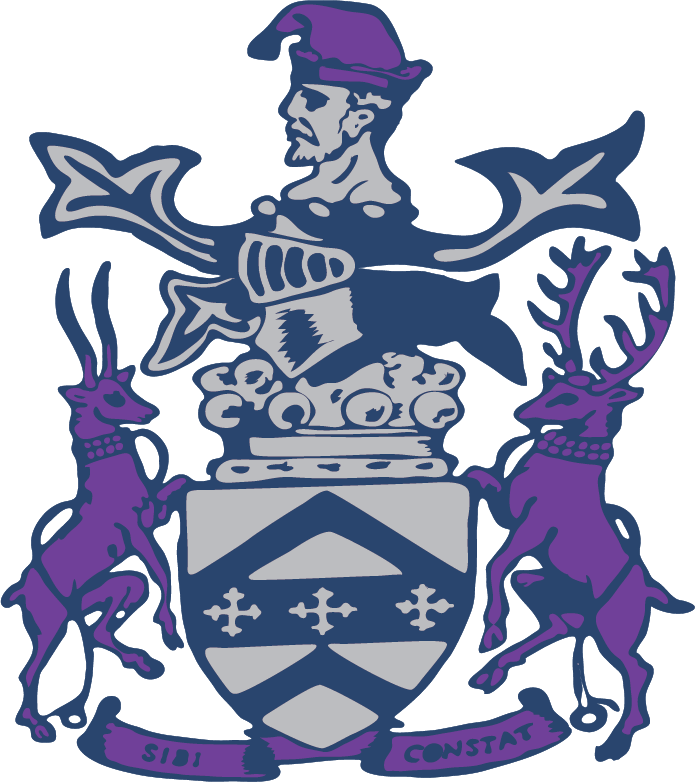
Continental Nurse has a small and friendly team with close to 100 years of experience working with the best hospitals in the best locations around the UK. Ask anyone!
Continental Nurse builds on decades of experience.
This experience inspired the launch of Continental Nurse, the premier travel nurse company in the UK. Seasonal demands and the worldwide shortage of skilled professionals mean travel nurses are more in demand than ever. That’s where you benefit.

Easier than ever…
And w e cover the costs, pass the word.
Travel nurses enjoy above-average pay rates and benefits, as well as the possibility of experiencing four different places in one year, such as the countryside, the seaside, a college town, and a city. Unlike temp agency nurses, you’ll be supplied with the hospital uniform. Our travel nurses are part of the team and dress identically to staff nurses. You won’t be pegged as an outsider because you won’t be one. You’ll be assigned to a particular ward, unit, department or clinic –not shifted around every day to a new section — so our Continental Nurses become an integral part of the team.
Our wonderful short term assignments include upmarket housing
We’re certain an attractive hourly rate, a short-term commitment, upmarket accommodations and travel money are enticing enough. But as a Continental Nurse employee, you may also receive twenty eight days of paid vacation annually, statutory sick pay, maternity pay, professional indemnity insurance coverage, and continuing professional education, among other benefits. Call now to discover how easy and fun it is to put your highly valued skills to good use while seeing the world.
Testimonial
So why wait, apply now and start your uk adventure..
- Name * First Last
- Specialty *
- Year of graduation * Date Format: MM slash DD slash YYYY
- Country of residence * Countries Afghanistan Albania Algeria American Samoa Andorra Angola Antigua and Barbuda Argentina Armenia Australia Austria Azerbaijan Bahamas Bahrain Bangladesh Barbados Belarus Belgium Belize Benin Bermuda Bhutan Bolivia Bosnia and Herzegovina Botswana Brazil Brunei Bulgaria Burkina Faso Burundi Cambodia Cameroon Canada Cape Verde Cayman Islands Central African Republic Chad Chile China Colombia Comoros Congo, Democratic Republic of the Congo, Republic of the Costa Rica Côte d'Ivoire Croatia Cuba Curaçao Cyprus Czech Republic Denmark Djibouti Dominica Dominican Republic East Timor Ecuador Egypt El Salvador Equatorial Guinea Eritrea Estonia Ethiopia Faroe Islands Fiji Finland France French Polynesia Gabon Gambia Georgia Germany Ghana Greece Greenland Grenada Guam Guatemala Guinea Guinea-Bissau Guyana Haiti Honduras Hong Kong Hungary Iceland India Indonesia Iran Iraq Ireland Israel Italy Jamaica Japan Jordan Kazakhstan Kenya Kiribati North Korea South Korea Kosovo Kuwait Kyrgyzstan Laos Latvia Lebanon Lesotho Liberia Libya Liechtenstein Lithuania Luxembourg Macedonia Madagascar Malawi Malaysia Maldives Mali Malta Marshall Islands Mauritania Mauritius Mexico Micronesia Moldova Monaco Mongolia Montenegro Morocco Mozambique Myanmar Namibia Nauru Nepal Netherlands New Zealand Nicaragua Niger Nigeria Northern Mariana Islands Norway Oman Pakistan Palau Palestine, State of Panama Papua New Guinea Paraguay Peru Philippines Poland Portugal Puerto Rico Qatar Romania Russia Rwanda Saint Kitts and Nevis Saint Lucia Saint Vincent and the Grenadines Saint Martin Samoa San Marino Sao Tome and Principe Saudi Arabia Senegal Serbia Seychelles Sierra Leone Singapore Sint Maarten Slovakia Slovenia Solomon Islands Somalia South Africa Spain Sri Lanka Sudan Sudan, South Suriname Swaziland Sweden Switzerland Syria Taiwan Tajikistan Tanzania Thailand Togo Tonga Trinidad and Tobago Tunisia Turkey Turkmenistan Tuvalu Uganda Ukraine United Arab Emirates United Kingdom United States Uruguay Uzbekistan Vanuatu Vatican City Venezuela Vietnam Virgin Islands, British Virgin Islands, U.S. Yemen Zambia Zimbabwe
- How did you hear about us? * Select your answer Google Advertising Google Search Results Facebook Instagram Linkedin Newsletter Referral Program Other
- Please specify (friend, colleague, etc.) *
- This form collects your name, email and details so that we can keep track of the comments placed on the website. For more info, check our privacy policy where you'll get specifics on where, how and why we store your data
- I opt-in to continued marketing and updates via newsletter
- I have read and agree to the Privacy Policy
1.800.620.947
1.855.207.0164, 1.800.77.1640, 1.866.892.2594, 0.800.451.971, dial direct, tel +44 20 7408 1234 , fax +44 20 7408 1235, info@continentalnurse. com.

Travel Nursing in Australia
Home » Travel Nursing in Australia
Travel nursing in Australia is a great option in international travel nursing if you want to be both adventurous and speaking English. Nursing in Australia is possible only if you’ve registered through the Australian Health Practitioners Regulation Agency, or AHPRA. Like the US, each Australian state capital has its own office, but there is no exam you have to pass to become a Registered Nurse in Australia. In order to go travel nursing in Australia, you just have to have the proper schooling and experience with verifiable proof of both.
Just hearing back from the AHPRA can take months so if you’re interested in travel nursing in Australia you should start the application right now. You’ll be sent a list of all the necessary documents from your employers and nursing school. Some of these documents include your nurse school transcript where they expect to see that you’ve taken a class in Medication Administration and Pharmacology. They’ll want to see over 800 hours logged in a clinical setting.
The board will also need employment verification from your current employer and your last 5 years of employment. The AHPRA does require letters from your employers that must include information about your employment such as the length of your employment if your employment was part time or full time and it must be on a company letterhead. You will have to sign each and every page of your Resume/CV as well. The AHPRA will want to see all the different state licenses you’ve obtained.
The AHPRA may also ask for details of your clinical time and a letter from your high school to ensure that your education was in English. If you cannot get this letter from your high school you can take the IELTS. Most travel nurses also must take the International English Language Testing System exam, or the IELTS, to prove they can speak English, but US citizens are exempt.
The application fee is $576 AU and the application process usually takes around 7 months. Once you’ve gotten your license, you’re free to look for a job ! Your Australian registration also enables you to apply to be a travel nurse in New Zealand with relative ease. That process is kind of like nursing in one US state and getting a license to work in another state.
You will have to obtain a Visa to work. The varying types of Visas you can apply for depend on your age. If you are under 30 you can successfully apply for a Work-Holiday Visa if you can pass a criminal background check. These Work-Holiday Visas usually last for up to 12 months and the only caveat is that you may not work for the same employer for more than 6 months. Essentially after working at a hospital for 6 months, you have to switch to another hospital for the next 6 months.
If you are over 30 years old you have to apply for a Sponsorship Visa. In order to obtain a Sponsorship Visa, a hospital has to sponsor you and Sponsorship Visas will be valid for up to 4 years. If after 4 years you still want to live and work in Australia you can apply for a permanent residency. The island is sparsely populated so they’re very open to immigration these days.
There are 2 ways travel nurses can go about taking nursing assignments. One is per diem and the other is by taking lengthy contracts. If you work Per Diem you get the flexibility of switching locations much more easily. While contract working does provide stability, those contracts can tie you down to one location for the duration of your visa.
Switching facilities every day is made easier by the fact that the majority of hospitals in Australia still use paper charting. Only a handful of the hospitals situated around universities has electronic health records. But since you don’t have to learn a new computer charting system each time, switches occur much more seamlessly than in the United States as new nurses hardly need a five-minute orientation. Just good luck making out everyone’s handwriting! 😉
Depending on your nursing specialty , travel nursing in Australia offers pay rates that aren’t as high as California, but are relatively close to the pay rates in Florida. If you want to take the next step for travel nursing in Australia, finding an agency is just a google search away and every website is in English. We’d recommend searching for Healthcare Australia’s Nursing Down Under!
Australia Nursing Council: 683 Murray Street West Perth, 6005 WA, Australia +61-8-9481-2488
http://www.australia-migration.com/page/Nurses_ANC/257
General Information Email: [email protected]
Overseas Information Email: [email protected]
PC: @kaylaahussey
Related Posts:
- Travel Nursing in New Zealand
- International Travel Nursing 101
- Travel Nurse FAQ
- All Aboard! The Travel Nursing Europe Express!
- How to Become a Travel Nurse
- How to Become a Vocational Nurse: Steps, Training,…
Leave a Reply Cancel reply
You must be logged in to post a comment.

IMAGES
COMMENTS
Nursing assistant level 1 ("Pflegeassistent:in") You will have to prove the following within the context of this application: Completed professional training as a registered (qualified) nurse, a nursing assistant level 2 or a nursing assistant level 1 A binding offer of employment ("verbindliche Stellenzusage") in Austria
Search and apply for the latest Travel nurse jobs in Austria. Verified employers. Competitive salary. Full-time, temporary, and part-time jobs. Job email alerts. Free, fast and easy way find a job of 657.000+ postings in Austria and other big cities in USA.
In order to work as a Nurse in Austria the following requirements must be met: Your professional qualification must be recognized in the Federal Ministry for health and social services. You have to be registered as a nurse in the Gesundheitsberuferegister. Proof of your german language skills on level B2.
While travel nursing assignments in the U.S. typically last between eight and 26 weeks, nursing jobs abroad are often longer. You'll likely work for at least a year in destinations like Australia and Europe, while it's common to commit to at least two years while working in the Middle East. If you're curious about international travel ...
International travel nurse salaries here vary and can range from €30,000 to €58,000 or $33,000 to 63,800. These are the seven best European countries when it comes to finding a job as a nurse. They provide amazing conditions and salaries; however, make sure you have all the right documents and certificates and properly prepare for all ...
How to work abroad as a nurse If you plan on becoming a traveling nurse, consider some of the following steps: 1. Earn your nursing degree A nurse who completes an associate or bachelor's degree from an accredited nursing program can become a travel nurse.Degree programs require courses like human development, ethics, physiology, anatomy and family health to prepare you for a health care career.
International travel nurses need a nursing license in the U.S. An APRN needs to take the certification exam in their specialty. After these two requirements, you will need a passport, visa, work permit, and any sponsorship for your destination country. Each country may have its own list of necessary documentation.
You need German language level B1 or B2 to work in Austria as a nursing assistant level 2 or registered nurse. The focus of the nostrification programme is therefore on developing your language and cultural skills. The programme starts at the university in your home country. Once you have reached level B1, you can work as a nursing assistant ...
Revenue. Unknown / Non-Applicable. Search Nursing jobs in Austria with company ratings & salaries. 82 open jobs for Nursing in Austria.
Revenue. Unknown / Non-Applicable. Search Nurse jobs in Austria with company ratings & salaries. 18 open jobs for Nurse in Austria.
Follow these steps to find and secure an international travel nursing role: 1. Have an active U.S. nursing license. In order to qualify for any nursing role, you must have a license to demonstrate your expertise in patient care practices and ethics. Licensure requirements may vary by state, but most states require:
Apply for Travel nurse jobs in Austria. Explore 527.000+ new and current Job vacancies. Competitive salary. Full-time, temporary, and part-time jobs. Fast & Free. Top employers in Austria. Travel nurse jobs is easy to find. Start your new career right now!
The average salary for a nurse in Austria typically ranges from approximately €30,000 to €45,000 per year. Entry-level positions may start at the lower end of this range, while experienced nurses, especially those with specialized skills or in senior positions, can earn towards the higher end.
Austria, Belgium, Channel Islands, France, Germany, Liechtenstein, Luxembourg, Monaco, Netherlands, Saint Pierre, Switzerland: ... The travel nurse's recommendations are reviewed by a travel doctor, who approves any travel medications and/or vaccines. Please allow 2 business days for all orders to be approved before going to your local ...
Final Thoughts on Travel Nursing. Becoming a travel nurse is a thrilling journey that promises adventure, personal growth, and unique experiences. From education and licensure to acquiring experience and embracing essential attributes, travel nurses embark on a profession that combines professionalism with exploration.
Evening Shifts are available Tired of the 12hrs shift The Village is now offering 8hr shifts. Apply for more details with updated shift rates. · Nursing Student Loan Debt Repayment and Tuition Assistance · *Health, Dental, Vision, Company-paid life insurance, 401K, Paid Time Off ...
According to their site, they offer a master's degree in Nursing Science, which can be completed in a span of 4 semesters, upon the completion of 120 credits. Other nursing schools in Austria like the FH Campus Wein offers a Master's Degree in Advance Nursing Practice, which lasts for a duration of 4 semesters, as stated on their website.
The average salary for a Registered Nurse is $2,104 per week. Last updated on April 23, 2024. Based on 126,989 active jobs on Vivian.com in the last 7 days. Explore all travel Registered Nurse salary insights.
1. Earn a nursing degree. If you haven't already, the first step to becoming a travel nurse is to earn your nursing degree. You'll need at least an Associate's Degree in Nursing (ADN) or a Bachelor of Science in Nursing (BSN) to qualify for most travel nursing positions. This is your most reliable way into the industry and will give you ...
Travel nurses enjoy above-average pay rates and benefits, as well as the possibility of experiencing four different places in one year, such as the countryside, the seaside, a college town, and a city. Unlike temp agency nurses, you'll be supplied with the hospital uniform. Our travel nurses are part of the team and dress identically to staff ...
A merit pool will be established from this recruitment process and will be used for the next 12 months to fill various positions both on a temporary and permanent basis with full-time and part-time opportunities available. Job Types: Full-time, Permanent. Pay: $130,845.00 - $130,846.00 per year.
Registered Nurse | Aged Care Travel Contracts. Redstone Nursing Pty Ltd. 8d ago. Melbourne VIC. $60 - $140 p/hr. Nursing - General Medical & Surgical. (Healthcare & Medical) Earn between $60 - $140 p/hr. Explore scenic locations across Victoria and Tasmania.
Travel nursing in Australia is a great option in international travel nursing if you want to be both adventurous and speaking English. Nursing in Australia is possible only if you've registered through the Australian Health Practitioners Regulation Agency, or AHPRA. Like the US, each Australian state capital has its own office, but there is ...